Incentive Travel
What is incentive travel? How are incentive programs, trips, and events different from conference and meeting planning? In this section we'll look at the definition of incentive travel, including: examples of incentive travel programs, how to become an incentive travel planner, an incentive travel planner job description, career advice, employment information, and the pros and cons of being an incentive travel planner in this sector of the events industry.
A guide to incentive travel programs; definitions, descriptions, and examples.

Careers in Incentive Travel / Destination Management
Why become an incentive travel planner or destination manager? Career advice and employment information.
Being an Incentive Travel Planner
What does an incentive travel planner do? Read a real incentive travel planner job description by Martin Turner, former Director of Travel, International Travel Group, and former Global Head of Events, Credit Suisse .
Pros and Cons of Incentive Travel
Pros and cons of incentive travel by Martin Turner, former Director of Travel, International Travel Group, and former Global Head of Events, Credit Suisse .
Being a Destination Manager
What does a destination manager do? Read a real destination manager job description by Jennifer Miller, Partner and President, ACCESS Destination Services .
Pros and Cons of Destination Management Careers
Pros and cons of destination management careers by Jennifer Miller, Partner and President, ACCESS Destination Services .
MICE: Meetings, Incentives, Conferences, Exhibitions
Although the content of an incentive travel program is very different to other types of meetings—in that the emphasis is on entertainment, activities, and socializing—the event planning process is very similar. Meetings and incentive programs both involve location planning, destination management, co-ordinating travel and accommodation, and creating a program of supporting events.
Meeting planners often find themselves working on a mix of meetings, conferences, and incentive travel programs, and in doing so will often call upon the services of a destination manager at a DMC (Destination Management Company). Destination managers are a type of event planner who offers local knowledge and resources to meeting planners in order to help deliver events in a particular region
What Is Incentive Travel?
Incentive travel is the reward element of an incentive, recognition, or loyalty program, which takes the form of an all-expenses paid trip with a program of scheduled events and activities.
Incentive Programs
Incentive, recognition, and loyalty programs (from here on referred to as just ‘incentive programs’) are used by companies as a motivational tool to achieve certain business objectives, for example to increase sales.
Participants—which might be the company’s employees, distributors / re-sellers, or customers—usually have to qualify by achieving a certain level of performance, pre-defined by the terms of the incentive program, e.g. achieving pre-set sales targets.
Those that meet the relevant criteria are then rewarded by taking part in the incentive travel trip (sometimes referred to as the ‘award’). These are usually group trips with a set itinerary where all those qualifying take part in the same program of events and activities, however individual incentive trips are also used by some companies.
Incentive Trips/Awards
To fulfill the award, the company will use some form of event / meeting planner to co-ordinate the trip and design the itinerary, including all travel arrangements, accommodation, receptions, dinners, activities, excursions, entertainment, and special events.
Often, this will involve the meeting planner hiring a Destination Management Company (DMC), located in the city where the event is being held, to assist them in booking and managing local elements, such as restaurants, venues, transport, staffing, production, décor, entertainment, activities, and excursions.
Incentives are a very effective way to drive sales. An incentive program might be aimed at a company’s employees i.e. the sales team, or its distributors / re-sellers.
For example, a car manufacturer might create an incentive program for its dealers, whereby they have to meet a certain sales target each month. At the end of the term of the program, a year perhaps, those that made the required amount of sales will be rewarded by coming together with management executives, and the other qualifying dealers, to attend the award trip.
This might consist of a three-day trip to Monte Carlo during the Monaco Grand Prix with a cocktail reception on a yacht, a private dinner at the world famous casino, followed by leisure activities and excursions such as sailing, wine tastings, golf, or a private tour of The Prince’s Palace.
Rewards and Recognition
Group travel can also be used as part of an employee reward and recognition program. Whereas incentive programs aim to inspire or influence someone’s efforts, the purpose of rewards and recognition programs are to reinforce certain behaviors.
A qualifying employee may be deemed to be improving customer service, living the corporate values, or meeting productivity goals. A company might create a group travel program ‘award’ as a way to engage with their employees, recognize performance, and reward top achievers.
The format is similar to those held for sales incentives in that, as a reward, the emphasis is on leisure activities, excursions, group dinners, and receptions. It might be a trip to Sir Richard Branson’s private game resort, Ulusaba Lodge in South Africa, with a program that includes safaris, hot air balloon rides, helicopter tours over canyons, and outdoor dinners and receptions with the finest African cuisine.
Employee Motivation
For example, in addition to various dinners and leisure activities, one company’s program included a team building session called ‘Helping Hands’ where employees were given a box of parts and an instruction booklet. Working as a team they had to assemble an object, which later transpired to be a prosthetic hand, which was then given to a land mine victim who had lost their hand.
Customer Loyalty
Another variation of an incentive program is when group travel is used to reward customer loyalty and repeat business. I have actually been on the receiving end on an incentive program organized by the parent company of a group of event industry suppliers.
The parent company owns a caterer, a venue finding company, a staffing agency, and a technical production company—amongst others. They have an incentive program whereby their customers, event companies such as my own, Left Field Productions , have their annual spend with any of the parent company’s businesses converted into points. Once a certain amount of points is accrued, my company qualifies for between one and three places on a group travel ‘award’.
One year this included a three-day trip to Portofino, Italy, where we stayed in the luxurious Hotel Splendido, which sits on a hillside overlooking the Mediterranean and is frequented by celebrities such as Madonna, George Clooney, and Elizabeth Taylor.
The ‘incentive travel program’ is what, up until now, we have been referring to as the ‘award’; it’s the reward element of the entire ‘incentive program’. Among event planners however, the ‘award’ is generally referred to as the ‘incentive travel program’ or just the ‘travel program’. It’s not really regarded as an event, because it’s usually a lot more than that; it’s a program of events and activities over several days or even a week.
Incentive Program
The ‘incentive program’ is the entire scheme that leads up to and includes the ‘award’. The ‘incentive program’ might start up to a year in advance, often it’s unveiled at the end of the current program—perhaps at an awards dinner on the final evening—in order to build excitement.
The incentive program is often unveiled on the final night of the previous year’s incentive travel program.
Teaser Campaign
‘Teasers’ are sent out to participants to build anticipation of the official launch. For example, if the destination is going to be a beach resort, then a flip-flop might be sent to each participant with a cryptic clue attached. Promoting an incentive is all about building excitement, so often the way it is communicated needs to be creating and engaging.
Official Announcement
Official announcement, information packs, and enrolment kits are sent out for participants to ‘sign up’ to the incentive program. These packs will outline the terms and conditions of the program, with information on what is required to qualify, for example defining sales targets.
Qualification period
During this period, which could last up to a year, participants are required to meet the pre-defined criteria that would enable them to qualify for the award, for example hitting sales targets.
Mid-Program Motivation
More teasers and reminders will usually be sent out over the course of the qualifying period to encourage the participants to meet the necessary criteria.
Qualifiers Announced
Qualifiers or ‘winners’ announced. In some cases, physical trophies or other gifts are handed out at this stage, in advance of the actual ‘award’ trip. Shortly after, travel arrangements will be communicated to the qualifiers.
Guests might travel separately from different locations or, alternatively, group travel arrangements will be made where everybody takes the same flight together.
Upon arrival in the destination city, participants might be greeted at the airport by local representatives, before transferring to their hotels. Often the creative elements of the program start here.
For example, when I attended an incentive program in Monaco, we were flown from London to Nice, South of France, and had expected to be driven on to our hotel in Monte Carlo. However, on arrival in Nice, we discovered a series of helicopters had been laid on to transfer us the rest of the way.
Hotel Check-In
Participants are then greeted at the hotel, checked in, and have some time to settle in before the evening’s welcome dinner. Typically a welcome pack and gift is often left in room.
Welcome cocktail reception. An opportunity for everyone to meet and network, perhaps on a private terrace at the hotel, possibly with live entertainment from musicians and performers. Usually the meeting planner will add in a few extra creative touches to make the reception a little more special, such as a wine or tequila tasting.
Open-air dinner in the hotel’s private gardens overlooking the sea, possibly with after-dinner entertainment and/or some speeches from the hosts. Often the first evening’s dinner is held ‘on-site’ at the hotel as people are tired from travelling.
After-Dinner Drinks
Often, on the first night, this is just informal after-dinner drinks in the hotel bar as most people are tied from travelling. However, depending on the group, there might be cigars and cognac laid on, or a private lounge area with cocktails.
Breakfast at the hotel, perhaps followed by an informal meeting or presentation regarding upcoming activities.
Excursion to local attractions, sightseeing, and shopping. These might be cultural activities or the opportunity to take part in authentic ‘real life’ experiences typical of the location—such as exploring the Hutong area of Beijing by bicycle and having tea with locals in their homes.
Group lunch at a restaurant or special venue. Again, this is an opportunity for the meeting planner to get creative perhaps by obtaining access to a venue or location that's typically not accessible to the general public—such as lunch on a movie set or in private rooms at a royal palace.
Afternoon of leisure activities, which depending on the group, might be traditional activities, such as golf or a spa day. Alternatively, it could be more unusual activities like cage diving with sharks or bulldozer adventure playground days. Often, the meeting planner will try to obtain some sort of unique or VIP access, such as getting to kick around footballs with a professional team and star players at their local stadium.
Reception and Dinner
The second day's evening cocktail reception and dinner typically takes place ‘off-site’ at a restaurant or private venue, usually with entertainment. Again this might involve some sort of unusual venue, such as a USO themed event on a real naval base.
Nightclub / Casino
Option to continue on to a local nightclub/casino.
Breakfast at the hotel, perhaps followed by an informal meeting.
Excursion / Activities
More leisure activities, trips, or opportunity to experience local culture. Depending on the group, this could be anything from cave tours, to zero gravity flights at a NASA training facility, to private backstage tours of a Broadway show and an opportunity to meet the cast.
Group lunch at a restaurant or special venue.
Team Building
Team building / experiential activity—sometimes with a connection to the local community or a charity. This might be building a park in the desert for a children's home or the Helping Hand's activity mentioned previously where the group make prosthetic hands to be given to land mine victims who've lost their hand
Dinner/Dance/Awards
Cocktail reception, gala dinner, awards ceremony, and dancing ‘off-site’ at a private venue. Next year's destination/incentive program revealed.
Breakfast at hotel.
Check-out / transfers
Hotel check-out, transfers to airport.
Group lunch at a restaurant or special venue en route to airport
Return flight home
Obviously, this format only outlines the bare bones of a travel program. The challenge for the event planner is in making these programs as creative and engaging as possible—especially when you have to create something new and different every year.
The destination, accommodation, and activities might be amazing in their own right. For example, a three night trip to Hawaii with an itinerary that includes a sunset cocktail cruise, a private dinner on the beach, activities such as surfing, golf, waterfall hikes, hula lessons, and stargazing treks. It might also include excursions to the Diamond Head volcanic crater and Pearl Harbor, before a closing dinner and awards ceremony on the final night.
However, a good planner will make sure they include some extra special moments, private access to people and places, or exclusive experiences that the guests could not create themselves—either through lack of financial resources, local knowledge, contacts, or even imagination.
New Orleans
One leading incentive travel company created a trip to New Orleans for one of its clients, a Fortune 500 company. In addition to the usual 5 star accommodation and the finest local cuisine, the company added some extra touches to make the trip even more special. These included a private parade along Bourbon Street, followed by a dinner on the field of the Superdrome—where they were greeted by a marching band with their names circling on the ribbon board and their photos on the Jumbotron. They even had the chance to toss a few footballs around the pitch.
The following day, to connect with the local community, the group spent the afternoon planting trees and bushes at a newly rebuilt elementary school, which had been devastated by Hurricane Katrina. The playground and the landscaping that the group contributed to were the final touches to the redevelopment that had been seven years in the making.
Whether it’s providing exclusive access to something not readily available to the public, taking part in authentic ‘real life’ experiences typical of the local culture, or giving something back by connecting with the local community, those moments create memories that go far beyond being a business trip or vacation—and is what makes incentive travel work as a motivational tool.
REFERENCES 1. Anatomy of a Successful Incentive Travel Program White Paper, Melissa Van Dyke, Incentive Research Foundation
Why become an inventive travel planner or destination manager? Career advice and employment information.

What Is Incentive Travel? Definition & Benefits

It’s no secret that offering an incentive to employees is a key factor in boosting performance, sales, and engagement.
So with that in mind, we answer the question, “What is incentive travel?” with a definition and the top benefits of offering an incentive trip program.
What Is Incentive Travel?
Incentive travel is a specific trip or tour offered to top-performing employees as a way to motivate them to make more sales, gain more customers, and/or improve overall performance. By offering an incentive trip, companies are able to drive their business goals and recognize top performers.
An incentive trip can be taken as a group or an individual vacation for the employee and their families.
Benefits of Offering an Incentive Trip
Offering an incentive trip has plenty of benefits, so we’ve outlined the top reasons why your company should start an incentive trip program today.
1. Company growth and increased sales
To reiterate, people like rewards. Employees respond to incentives and, in return, target sales are more likely to be met and there could be an increase in business growth. By giving employees a goal to strive for, it promotes productivity gains that could potentially be seen across the board.
The increase in sales and productivity driven by the workforce will far outweigh the cost of offering an incentive trip. Additionally, by making employees feel valued, this will also likely increase sales and overall performance.
2. Stronger relationships and increased loyalty
Not only will employees be incentivized to sell more or boost their overall performance, but companies that offer incentive travel are also able to build stronger relationships with their employees.
Everyone wants to be rewarded for their hard work and employees recognize when companies offer those rewards. Offering an incentive trip will not go unnoticed.
Additionally, employees may be more likely to stay with a company that offers these rewards. Company loyalty is extremely important in long-term employee retention and incentive travel can help with that.
3. Extra professional development time
During an incentive trip, many companies opt to use some of the time to promote additional professional development through workshops and seminars.
Certainly, one of the most important parts of an incentive trip is to allow employees to relax and reap the benefits of their hard work, but by setting aside a couple of hours for professional development, employers are given the opportunity to blend leisure and learning.
4. Family time leads to a better support network
Many companies offer incentive trips for employees and their families. By allowing their families to join, companies are also promoting a healthy family support system.
Travel creates long-lasting memories and hard-working employees deserve to take some time out with their families to enjoy these memories together. This will hopefully promote high productivity for years to come.
5. Company bonding
Some companies treat incentive travel as more of a retreat for their employees to get to know each other, network, and team build. Whether you are getting the entire team together or a select few of the top sellers, this is an excellent opportunity to allow for some intercompany bonding.
This could also lead to higher sales or company growth because employees are able to get to know each other better on a much different level than they normally would in the office.
This is especially beneficial for companies spread out across the country or those that mainly work remotely. There’s nothing like an in-person connection and an incentive trip does just that. And it’s a lot of fun for everyone!
At the end of the day, offering incentive trips for employees is a win-win for everyone. Employees are encouraged to grow their productivity while they are also shown that their company values them and rewards them for their hard work. The company benefits from this hard work by hopefully seeing growth in the bottom line.
As a travel agency specializing in incentive travel, contact us and let us help you plan an incentive trip to motivate your employees and bring your company to a whole new level!
You may also like...
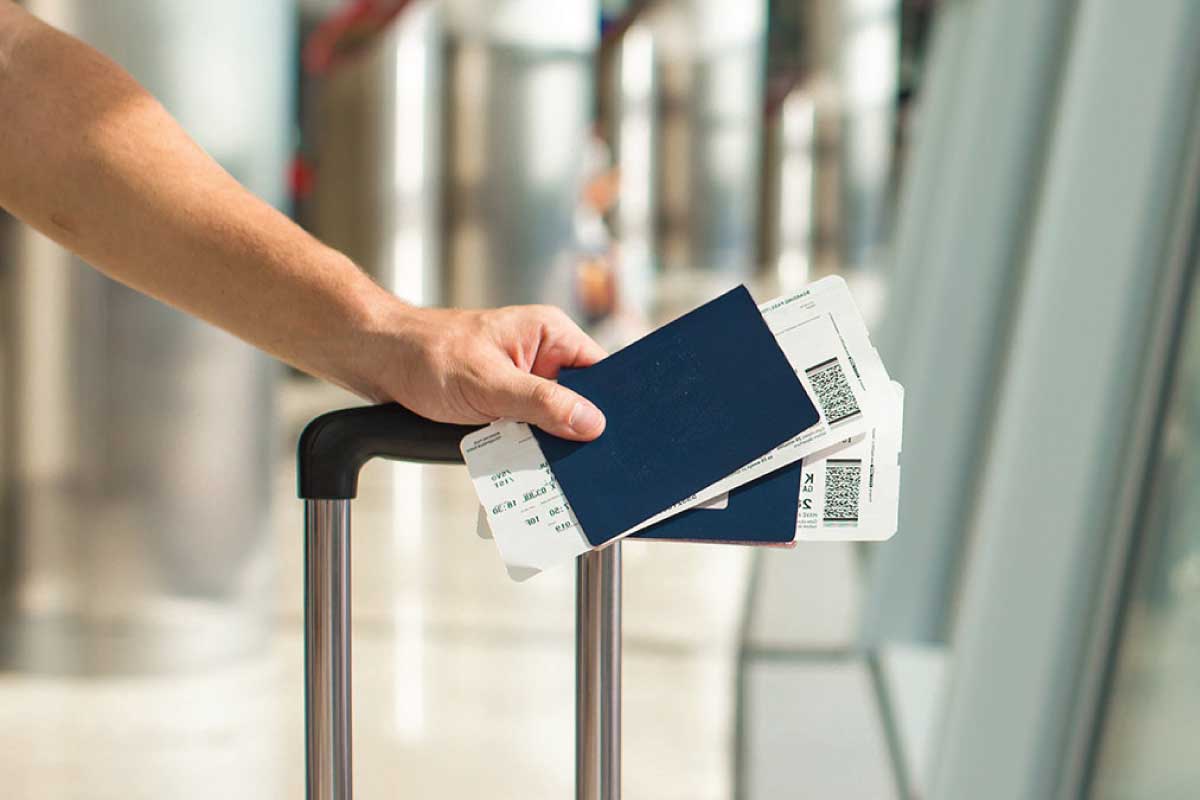
Is Travel Insurance Worth It for Your Group Trip?

6 Best Destinations for Family Reunions

8 Best Resorts for a Bachelorette Party in Punta Cana, Dominican Republic
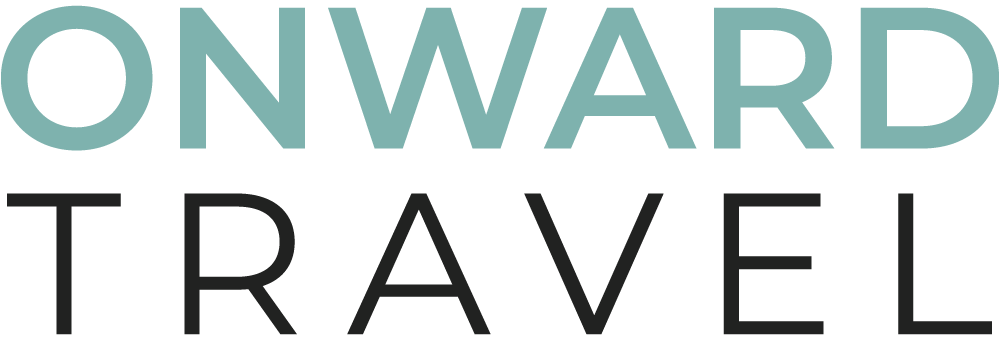
Request a Free Quote
What is Incentive Travel?
Making the business case for incentive travel.
Reward and Recognition – why use incentive travel?
In its purest sense, Incentive Travel is a performance enhancement tool used to inspire outstanding workplace behaviours against clearly defined goals.
It’s a key part of the reward and recognition programs that organisations offer to motivate, incentivise and inspire outstanding performance amongst their workforces.
Cash bonuses, premium merchandise, memberships and flexible benefits are other types of reward typically offered by organisations:
Cash bonuses are widely deployed in organisations to reward performance. They have the advantage of being easy to implement and everyone understands the value of cash.
That said, they are ephemeral, here today, gone tomorrow. Cash often gets absorbed into a qualifier’s regular expenses so there is little to associate the reward with the organisation that offers it and the reward can be easily forgotten.
Merchandise is often used as a reward instead of cash and this is usually for fiscal reasons. The merchandise used in incentive programs is usually high end or luxury, ie, something a qualifier would not normally purchase on their own behalf.
However, no matter how high-end or premium, the merchandise has a known price so it places a finite value on the reward. It may be validating for the qualifier to have an over-sized TV screen, but the sense of validation may be short lived as there will always be bigger and better TV screens.
Some organisations offer memberships (golf club, gym, yoga etc) and benefits tailored to the specific needs and interests of the qualifer.
These rewards are already more enduring in their value to a qualifer than cash and merchandise, but they still have a finite value and place a specific price on the extraordinary effort that a qualifier made to get them.
Winning a place on an incentive travel program, however, has clear advantages over all the other tried and tested rewards. The principal advantage is that it’s “priceless”, offering an extraordinary travel experience, comprised of experiences not available in a tourist brochure. When planned well, these travel experiences can be deeply impactful, even transformational for the qualifier.
There are other benefits, too. Incentive travel is usually offered to a qualifier PLUS a significant other. Thus the sponsoring organisation is facilitating an outstanding shared experience for two people – both can look forward to the trip together (significant other acts as a performance catalyst) and both can treasure the memories it generates.
There are benefits to the sponsoring company too in that the incentive travel experience facilitates relationship building between qualifiers and officers in an organisation and can be a tangible way to put express, and get buy-in to, company culture.
MICE: Incentive Travel = the “I” in MICE
There is no universally agreed category header to describe the industry and marketplace variously known as The Meetings Industry, MICE, Business Tourism, The C & I sector, Business Events, The Meetings and Events Industry.
Different Destination Marketing Organizations (DMOs) favour different category headers and, moreover, argue vehemently against the use of others.
MICE, an acronym meaning Meetings, Incentives, Conferences, Events is widely used in Asia and Europe but often disliked in North America and Australia where Business Events has gained currency. The UK prefers The Meetings Industry.
Incentive Travel is the “I” in MICE. While corporate meetings usually seek to inform or educate participants, incentive travel seeks to motivate and inspire them. Incentive travel is described by the Society for Incentive Travel Excellence (SITE) as
“... a powerful business tool to reward and unlock human potential to achieve corporate objectives.”
Incentive travel, therefore, is about reward and recognition – rewarding team members with an extraordinary travel experience for delivering outstanding results, recognising these high achievers before their peers and publicly validating their achievements.
For incentive programmes, the “appeal” of the destination is crucial as an all expenses VIP trip to this destination is the prize or the reward awaiting the qualifiers (those who exceed the targets set for qualification for the trip). Unless the destination is truly attractive and appealing, it will not trigger the emotional reaction necessary to motivate the employee to qualify for the trip .
The objectives of an incentive travel programme are many and can include:
- increasing sales
- building morale and loyalty
- increasing market share
- encouraging teamwork and better customer service
Incentive travel is used as a motivational tool across many industry sectors but is used particularly by the following ones:
- Financial and Insurance
- Fast Moving Consumer Goods (FMCG)
- Direct Selling Companies (sometimes known as Network Marketing)
The supply chain for incentive travel starts with the organisation that decides to launch an incentive travel program (often called the “end user” or corporate planner) and includes a plethora of suppliers including specialist agencies in both the source market and destination, airlines, transportation companies, hotels, venues, restaurants, visitor attractions, speaker bureaux and AV / Production companies.
Of all the MICE segments, Incentive Travel is accepted as the segment that deploys the most touch points in both a source market and a destination.
Often the supply chain is divided into Buyers (corporate end user, agencies in source market) and Suppliers (airlines, agencies in destination, hotels, venues etc).
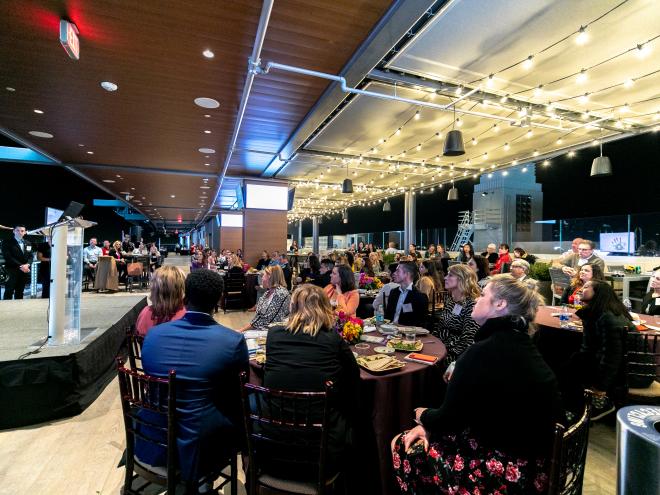
Making the Business Case for Incentive Travel
As the leading voice for the incentive travel industry, SITE & SITE Foundation are embarked upon an ongoing advocacy campaign to demonstrate the value of incentive travel as an effective marketing and business tool.
By providing education and certification programs, networking opportunities, industry research, and advocacy for its members and the incentive travel industry at large, SITE and SITE Foundation work to promote the value of incentive travel to businesses; emphasizing the positive impact that incentive travel can have on employee motivation, performance, and job satisfaction.
We need your help to collect the case studies that illustrate that effectiveness.
Why should you get involved?
By harnessing the experiences of incentive travel users, our campaign’s goal is to prove that incentive travel means business results; therefore increasing your incentive business, and its perceived value.
How can you get involved?
Submit a statement and brief case study by filling out the Campaign Brief Form ; both sections #1 and #2. Submit completed forms via email attachment to [email protected] .
SITE Crystal Awards
Considered the highest honor in our industry, the SITE Crystal Awards recognize creative, practical and truly memorable incentive travel programs that keep employees engaged, drive business results and improve the bottom line for global corporations.
The awards are aimed at incentive travel professionals all over the world. Winners represent excellence in their profession and offer inspirational examples of how incentive travel experiences benefit qualifiers, their companies and the destinations where they are hosted.

Surely the most compelling examples of the business case for Incentive Travel are SITE’s annual Crystal Award winners? Selected by our global panel of experts, the winners of a Crystal Award embody in their program design and delivery undisputed examples of excellence illustrating, convincingly, why incentive travel is THE most effective reward in a company’s reward and recognition initiative.
Foundation Research
SITE Foundation was established by SITE to raise funds and support research, education and advocacy projects on behalf of the incentive travel industry.
Monies raised by SITE Foundation enable us to make the business case for incentive travel and highlight the transformational potential of travel experiences on individuals, enterprises and communities.
Since 2017 SITE Foundation has invested over $1.25million to drive the business case for incentive travel and support professional development within the industry.
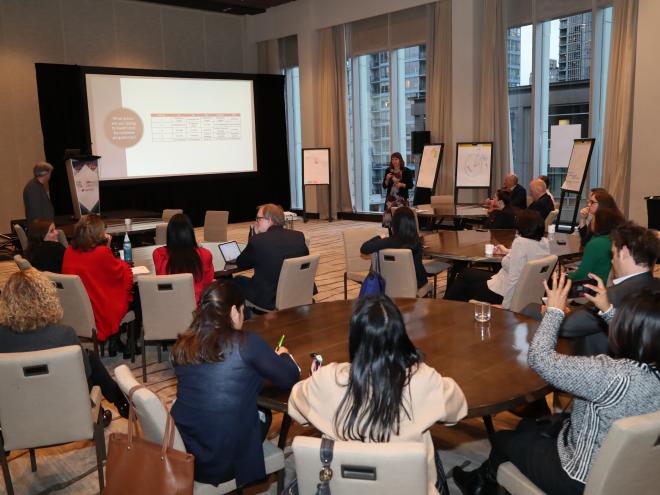
Evidence-based research is crucial when it comes to making the business case for Incentive Travel. That’s why it’s a core tenet of SITE Foundation’s vision and mission. Each year SITE Foundation commissions original research on various aspects of Incentive Travel to equip Incentive Travel professionals all over the world with data to underpin their important work on behalf of national, regional and global corporations.
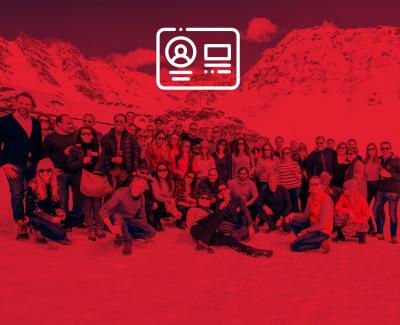
SITE offers a number of options for individual and group membership
Go to Membership
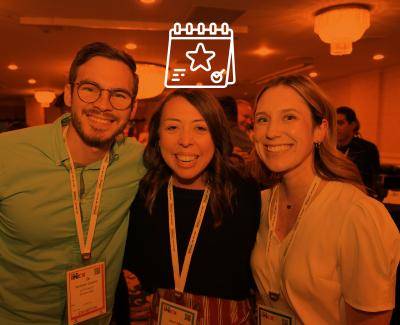
Register for in-person and virtual events organised by SITE HQ and our Chapters
Go to Events
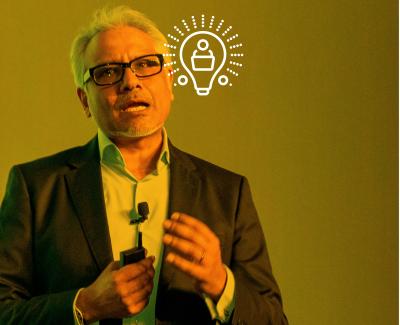
Check out SITE’s rich portfolio of webinars, online courses and educational resources
Go to Learn Hub
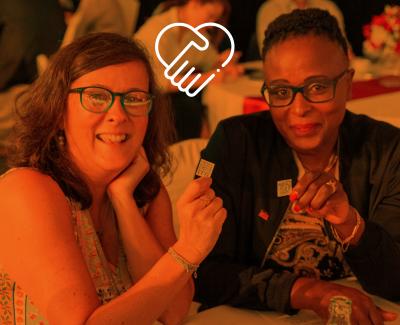
Since its formation in 1987, SITE Foundation has invested over USD$10M in our industry
Learn about the Foundation
Connect with us
You are using an outdated browser. Please upgrade your browser to improve your experience and security.

- Events Portfolio
- Conferences & Meetings
- Incentive Travel
- Awards & Special Events
- Virtual Events and Hybrid Events
- Team building & Training
- Venue Sourcing
- Event Technology
- Attendee Management
- Group Travel
- Strategic Meetings Management
- Case Studies
- Event Travel Management Blog
- Event Travel Management News
- Contact ETM
Local solutions, delivered globally
ETM provides local service solutions to customers around the world. Please select your local region, and start experiencing the ETM difference!

26 August 2021
A guide to incentive travel programs and experiences
Incentive travel is a way for companies to reward their top-performing employees with a vacation or trip, paid for by the company. Many corporations use incentives to recognise their top employees or to drive sales through non-direct employee channels such as insurance agents, car dealers, or direct sellers.
What is incentive travel?
At the most basic level, incentive travel aims to boost employee performance and engagement, while driving business goals. Incentive travel can be a group trip or an individual vacation for your top employees and their spouses or family. Trips can be a blend of leisure and professional development time.
What are the benefits of incentive travel to employees?
Travel delivers two major benefits to your achievers:
- Lasting memories and stronger relationships. Travel experiences build a lasting memory that directly correlates to the achievement. Group travel often provides achievers with quality interactions with the host organisation’s leaders and other top achievers, building key relationships. Achievers are more likely to remember a private viewing of the Sistine Chapel, a trip to the Panama Canal, or a beach volleyball game with their CEO more than how they spent their last bonus or merit increase. Research studies show that these lasting memories encourage continued achievement.
- A better support network. When organisations allow spouses or families to attend the travel programs, it also helps the achiever build their support network at home. Families understand the achiever’s drive and encourage their hard work when they also experience the benefit.
What are the benefits of incentive travel to organisations?
- Performance and productivity gains – particularly amongst mid-level performers. Mid-level performers have the potential to become high performers. According to the Incentive Research Foundation (IRF), the potential performance gains from your “middle 80%” of employees are likely more significant than your top 10% of performers. When a corporation successfully shifts these mid-level performers towards higher rather than low performance, the incremental productivity delivers ROI.
- The magic of gratitude and increased loyalty. Incentive travel is a reward and recognition program designed not only to motivate but also to show gratitude to performers that rise to the challenge set by the program. Appreciation often drives connection and engagement. Incentive programs can build loyalty with employees, customers, or any other target incentive audience.
How do organisations create and structure incentive programs?
Many organisations opt to have tiered incentive programs, which help to drive achievement at multiple levels. For example, perhaps only the top 1 – 3% earn a travel incentive. In comparison, the top 10% earn other types of incentives, including merchandise and gift cards.
In the past, it was also common for organisations to tier their travel incentive offering. Perhaps a top achiever would go on a long-haul, “once-in-a-lifetime” trip, whereas lower tiers would go on shorter trips closer to home. Another option is to tier a single trip where top earners fly first class, receive suite upgrades, or attend a completely exclusive event during the trip, such as a private picnic on top of a mountain accessible only by helicopter.
More recently, we are seeing organisations opt for individual incentive travel options in which achievers can choose from either a pre-arranged trip or receive a travel voucher and create a customised trip.
How is an incentive program implemented?
Corporations often use incentive travel companies with expertise in this area who can assist with implementing some or all components of an incentive program, which includes the following steps:
- Set goals. Outline your goals for your program, including ROI. For example, a sales team incentive trip might be generating a set number of new leads, or increasing sales amongst a target market or vertical.
- Outline rewards and rules. The rewards should be compelling enough to be motivating and align with the objective. Clearly stated rules also help to avoid disappointment and surprises when a performer earns (or doesn’t earn) the reward.
- Launch. The best incentive programs include a launch strategy that clearly outlines objectives, rules, and rewards along with an ongoing communication campaign and tracking system so that performers know where they stand. Communications remind the audience pool about the incentive, and tracking systems allow your audience to know where they are in the running to receive the incentive, so they continue to perform to reach the goals you’ve outlined.
- Deliver rewards. Delivering the reward is the crux of the program and must be done professionally. Each earner has worked hard to achieve the reward, and they should receive it in a way that demonstrates the proper level of appreciation. Incentive professionals design the overall attendee experience starting before attendees even leave home all the way through the trip and return home. An incentive trip that is poorly executed produces a negative attendee experience and can be demotivating – the opposite effect the trip’s goal
The bottom line? Incentive travel programs are an investment that enhances performance, fosters loyalty, and inspires your achievers – a win/win scenario for corporations and their employees.
Eager to find out more about incentive travel programs?
Take the stress out of event management with our expert event planning team.
Related Articles

Top 5 considerations for meetings managers as in-person events return

New travel technology driving safety, hygiene and efficiency

Conference Planning: key considerations
See how Cvent can solve your biggest event challenges. Watch a 30-minute demo.

Incentive Travel: the Best Way to Motivate Your Employees

Business travel isn’t quite back to pre-pandemic levels the way it’s complement, leisure travel, is. But there is a growing realization among senior level executives that the strategic use of employee rewards can increase profitability . And with much talk the past few years about increasing travel by outlets like Forbes , it’s no surprise that incentive travel is on the rise in the corporate sector. But does your organization really need one? Keep reading to learn the basics of incentive travel with tips and tricks from professional incentive travel planners you won’t find anywhere else.
What is incentive travel?
Incentive travel is any trip paid for by a company as a reward for employees with stellar performance. It’s often used to motivate and reward employees or partners.
Getaways typically last three or more days. Activities include everything from team-building exercises to networking opportunities to and free time to explore the destination.
And while they can be given to any department, incentive travel is most commonly used to motivate sales teams. As for who pays the bill, the company typically funds the majority of the expenses. Some incentive trips are offered separately or in combination with other perks.
Cvent interviewed Susan Shure of Susan Shure Travel who gave us some more thoughts on incentive travel.
“Incentive travel is also known in a lot of companies as employee reward programs,” she told us. “Companies can reward employees for years of service, employee of the month or year, and more. These rewards can include trips abroad [to places like] Europe, Caribbean all inclusive, [and] Hawaii, cruises and more.” They may include corporate meetings or some work-related events in addition to the vacation-like itinerary.
Incentive travel has been around since the 1970s, but it is often misunderstood due to the wide variety of forms it can take. But as non-monetary rewards, such as increased paid PTO, are becoming more prevalent in the corporate world, it’s no surprise that there’s a newfound interest in creating programs like these.
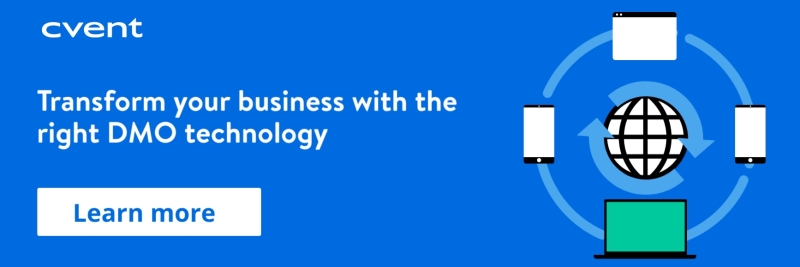
The incentive travel industry as a whole is rebounding from its recession years ago, largely due to the backlash it received from the media and politicians, and from the COVID-19 pandemic. According to the 2019 Incentive Research Fund index, 84% of U.S. businesses used non-cash incentives to retain and motivate their employees, with incentive travel being a popular option before the pandemic. Now with the looming economic recession, non-cash incentives can be a great way to retain employees.
And it’s clear why.
Incentive programs offer a lot of benefits
Like other perks, incentive travel is used to boost employee engagement and productivity. It works by encouraging employees to improve their performance and reach goals. This is especially motivating for younger and mid-career employees.
As of 2020, Millennials make up half of the world’s workforce . And if there’s one thing Millennials love, it’s travel. They’ve reportedly made travel more of a priority than any generation before them . So it’s easy to see why incentive programs are a great fit for most organizations.
Not only that but a travel program helps organizations create a culture of collaboration and commitment to a shared mission. Unifying teams through experiences rather than monetary incentives alone promotes better relationships with the company and positive associations with the business they work for.
This level of customization is one of the most attractive benefits of incentive travel. Not only do businesses have control over what activities they offer but they can also stay within budget and book for their specific party size.
Ni Wayan, Editor and Contributor at Balipedia , adds that the benefits for employers don’t stop there. “I believe that incentive travel is one of the most famous non-cash prizes that’s used by companies to motivate sales staff, partners, and even consumers to greatly improve sales, keep their best reps from going, and motivate the remaining sales staff to pick it up,” says Wayan.
Incentive travel is also a great way to tie in your company’s values. Christopher Hill of Hands Up Incentives told Cvent via email that his company “specializes in sustainable incentive trips that include a CSR component in order to engage employees, bring them closer together, and enhance their reputation.”
There are many examples of incentive travel
Shure shared with Cvent the following examples of incentive travel packages she has organized:
● An all-expenses-paid trip to Bungalows Key Largo ● All-expenses-paid trip to Maui for a week ● A three-day cruise to the Bahamas ● Four nights at an all-inclusive hotel or resort
And Hill provided another example of a Hawaiian incentive travel package they arranged recently. It “included two days of building a community cultural center in a low-income part of Honolulu.” They also booked a luxury hotel and gala dinners for the group.
As for activities, Hill said they enjoyed everything from “cage shark swimming to mountain biking to a private tour of Pearl Harbor”.
Is incentive travel really worth the investment?
Annual incentive travel spending averaged $4,260 per employee in the U.S. before the pandemic. The return on investment that companies see in their travel programs is often measured in terms of profitability. This method helps determine if the program is working and, in turn, generating higher profits.
Many business owners are not convinced that paying for a perk is worth the intangible value it brings. Nevertheless, companies that choose to create incentive travel programs gain increased employee engagement, satisfaction, and profitability.
These can be measured through various metrics by department or by employee survey. So it is, in fact, more substantial than most executives believe.
And according to the IRF's Anatomy of a Successful Incentive Travel Program , “Examining the tenure and company performance ratings of 105 of the employees who earned the incentive trip, researchers found that 55% of incentive travel earners had top performance ratings and tenure of four years or more, showing a very real correlation between incentives, longevity and quality.” In other words, not only are incentive travel programs fun, they’re also impactful at a high level.
In a nutshell: incentive travel is an investment that's made to maximize business results.
Get to know the bleisure traveler
Wondering how to plan an incentive travel program employees will love?
It takes a little planning and forethought, but the process is relatively straightforward.
1. Have a vision
Set clear, achievable goals that are aligned with strategic business objectives. These goals should be measurable and specific. Even if your company isn’t ready to develop an entire program, you could still offer smaller perks such as plane tickets and a hotel voucher.
2. Know your team
Planners will also need to have a strong understanding of what motivates their employees. It should feel like an award that employees wholeheartedly respond to, so much so that they feel encouraged to develop new skills and ideas to unlock this achievement.
3. Make everything trackable
Adhere to a consistent communication style. Whether it's through a software system or an interactive leaderboard, employees must be able to follow their progress and prove it through detailed records.
4. Promote it often
Supporting the travel program is an integral part of a company's strategy. It should be promoted regularly and celebrated at all levels. During this qualification period, team members will work hard to reach their goals. The continuous effort and excitement management puts into building up the anticipation for the trip will motivate employees even more.
5. Evaluate your program
Continual evaluation of your program rewards and structure is key to sustaining this strategy long term. Use a combination of KPI data linked to goals and an end-of-event assessment to determine if the program is meeting its intended purpose. Simply by asking attendees to rate the events and their overall experience, companies can easily measure the program's success.
6. Reap benefits long term
In that same study conducted by IRF, employees who earned an incentive getaway continued to perform at an elite level after they returned which was inspired by their trip.
Why should you partner with a professional to create your program?
Companies like Shure’s help businesses organize, book, and manage incentive travel. “Susan Shure Travel can put together any kind of employee incentive you want,” says Shure. “We can even arrange for you to charter a cruise ship as a company incentive.” As you can tell by now, the only limit to incentive travel is your imagination.
Follow the road less traveled to secure deals
In an email to Cvent, Broke Backpacker Founder and CEO Will Halton said that there is one often overlooked department of any travel brand you should contact directly when looking for affordable incentive trips. “If you are passionate about travel, look to speak to the marketing team of certain companies to see whether you can work together. Please note that this does[n’t] mean free stays or travel. It means creating a relationship which will help you explore the destination but also help the company to attract new audiences. A relationship is way more valuable in the long term [than] a discounted stay for one or two nights.”
In other words, this long-term strategy is great for securing travel incentives as long as you develop a network of hospitality marketers.
Up next, check out these fabulous venues and destinations for your next travel incentive getaway in The Palm Beaches .
Cvent Guest
Cvent is a market-leading meetings, events, and hospitality technology provider with more than 4,000 employees, ~21,000 customers, and 200,000 users worldwide.

More Reading
How to market to corporate event planners, what is a hotel business plan, and why you need one, 12 ways to use hotel ai to improve your business.
Subscribe to our newsletter

What are the benefits of incentive travel programs & rewards?

Throughout America, Europe and Asia, budgets for incentive travel are growing as companies recognise the benefits and move away from monetary awards and mandated corporate events.
In this article, we learn why incentive travel programs are so popular and look at the benefits for both organisations and employees.
What are the benefits of incentive travel?
Corporate incentive travel programs have become increasingly popular as a way of achieving goals and rewarding top performers. As organisations recognise the benefits of incentive trips, allocated budgets have grown exponentially from 0.5% in 2018 to almost 6% in 2022.
So why have travel incentive programs become so popular? And what makes them preferable over traditional monetary rewards?
Benefits of incentive travel for employers
At one time, organisations would disregard incentive travel programs because they considered them to be exuberant and unnecessary with little tangible value.
But that school of thought is on the way out.
Leading companies now agree that incentive travel programs are highly effective with a measurable ROI.
- Tangible benefits: It will come as no surprise that monetary incentives are still the leading reason organisations invest in incentive travel programs. A study by IRF in 2019 deemed that “increased sales and/or profits for the company” is still the leading benefit of incentive travel. Hard dollars and corporate profitability are, naturally, of the utmost importance.
- Soft power benefits: While increased sales and profits are still the primary reason organisations are using incentive travel awards, IRF’s 2019 study found that “soft power” benefits such as higher employee engagement , better productivity, improved relationship-building between employees and management and the retention of employees and partners are becoming more important to buyers. But that doesn’t mean “soft benefits” don’t produce monetary rewards. Motivated employees are inspired to develop themselves professionally and reach higher levels of success. This leads to improved performance, more sales and, eventually, increased revenue.
- Additional benefits: The benefits of incentive travel permeate deep into the fabric of your organisation which can cause some benefits to escape unnoticed. Improved performance can be quite simply correlated to incentive travel programs. But what about other factors? Consider, for example, how your long-term employees could serve as ambassadors for your brand and inspire new hires to reach their full potential, or how a united workforce demonstrating a strong company culture helps attract top-level talent from your competitors. These more subtle benefits form part of a high-performing organisational ecosystem that gives you a significant competitive advantage.
Benefits of incentive travel for employees
Despite the obvious joy of a free holiday, incentive travel initiatives provide many benefits for employees:
- Improved growth opportunities: Incentive trips allow employees to transgress the often impenetrable barriers of the corporate hierarchy. This nurtures their emotional bond with the company and enables them to connect with corporate heavyweights. Creating opportunities for employees to further their careers is critical for job satisfaction. Most of your employees don’t want to be stuck in the same role forever, they want to grow and take on more responsibility.
- Stronger interpersonal connections: Incentive travel also provides employees with quality time away from the office, allowing them to build strong relationships and lasting memories. These connections contribute to job satisfaction and improve collaboration. Strong emotional ties increase the likelihood of an employee going the extra mile or supporting a colleague, even when the task at hand doesn't pertain directly to their role. This is a great indicator that your employees are satisfied and engaged at work.
- Recognition of contributions: Employees want their hard work to be acknowledged. That shouldn’t come as a shock. According to a SurveyMonkey study of 1,500 employees Americans, 82% of employees are happier when they’re recognised at work . Travel rewards are a fantastic way of demonstrating appreciation to an employee and making an example of their efforts. When mid-level employees see that their top-performing peers are being well rewarded, they’re more likely to reach strive for success themselves.
Why are incentive travel programs so effective?
People value experiences more than things , that’s what makes incentive travel programs so effective.
The prospect of jetting off on a five-day trip to Hawaii with friends and colleagues is much more appealing than a cash bonus, and once word starts to spread about a potential holiday in the tropics, excitement in the office will build quickly.
This buzz is fundamental to the effectiveness of an employee incentive program — nobody wants to be left behind while the rest of the team packs their swimming trunks. This motivates the potential earner to work harder to meet the criteria for the trip.
In the IRF’s June 2021 study , The Impact of Destination Choice on Motivation , they reported that group incentive travel awards are considered ‘very’ or ‘extremely’ motivating by 80% of survey respondents.
Why monetary rewards don’t help you meet your company goals
Traditionally, managers would motivate behaviours with monetary rewards. But now, 84% of U.S. businesses are using non-cash incentives to push their agendas and as many as 40% are using recognising employee contributions with travel rewards.
That’s because cash rewards aren’t effective motivators. Sure, nobody is going to turn down a juicy end-of-year bonus, but they aren’t sufficient for encouraging new behaviours.
Cash is fleeting. It generates temporary pleasure that’s almost immediately squandered on mundane responsibilities like mortgage payments, credit card debts and utility bills. It’s also extremely personal and doesn’t generate excitement at a group level.
To turn a mid-level performer into a top-level performer, the reward needs to be highly attractive, like a long weekend in Athens , perhaps?

free course
How to plan your first company retreat

Retreat Budget Spreadsheet
Are you organising a company retreat and want to make sure you have all the costs under the control?
Get a copy of our free Budget Calculator spreadsheet.

7 Modern personal appraisal methods to level up motivation

14 Creative ways to embrace International HR Day

Retain talent: 10 Causes of high employee turnover rate

Reward loyalty with our 31 Customer Appreciation Day ideas

27 Office birthday party ideas for any personality type!
Organize your next company retreat with surf office, 💌 join 17,000+ managers receiving insights on building company culture that people love., stay in touch, work with us.

BE ALWAYS UP TO DATE
Subscribe to our newsletter.

Incentive travel: top tips for selecting the right destination for your next incentive trip
In today's fast-paced business world, remote and hybrid work models have become the norm for many organizations, necessitating a review of incentives, rewards, and recognition systems. In fact, with so many workers now operating off-site more frequently, employers are facing new challenges in motivating and engaging their teams. And that is where incentive travel comes in.
Incentive travel has emerged as a powerful tool for boosting morale, increasing engagement, and enhancing business relationships. It offers an opportunity to reward top-performing employees, motivate sales teams, and strengthen relationships with key clients.
Moreover, as reported by the IRF 2023 Trends Report - Incentive Research Foundation, incentive travel activity will be strong in 2023. Still, with the added emphasis on employee retention and recruitment, incentive trips need to be more exciting, exclusive, experiential, authentic, and memorable than ever.
Therefore, one of the essential aspects when planning an incentive travel program is choosing the right destination . But with so many options available, this can be a very daunting task.
In this blog, we will explore some top tips for choosing the perfect destination for your next incentive trip, ensuring that your investment is maximized and your attendees have a truly unforgettable experience.
What does incentive travel mean?
Incentive travel refers to travel experiences offered to employees or customers as a reward for achieving specific goals, targets, or milestones. It is a way to recognize and celebrate their hard work, dedication, and loyalty to your organization.
Incentive travel programs typically offer participants a unique and memorable travel experience that they might not otherwise have the opportunity to enjoy. These experiences can include exotic, luxurious, or adventurous destinations, such as an all-expenses-paid trip to a fun Spanish island, a ski trip in the French Alps, a cultural tour of a historic Italian city, or a sailing adventure in Portugal.
Incentive trips can also include team-building activities, networking opportunities, and special events that help participants to build relationships, increase their skills and knowledge, and further their personal and professional development.
Overall, incentive travel is a powerful tool for organizations to motivate and incentivize their employees, partners, and customers while providing them with unique and memorable experiences that can help boost morale, engagement, and loyalty.

- Why GoGather
- All Our Services
- Corporate Event Planning
- All Event Solutions
- Conferences
- Corporate Meetings
- Incentive Trips
- Sales Kickoffs & National Sales Meetings
- Preferred Properties
- Success Stories
- Buying Guide
- Pricing Guide
.png?width=300&height=60&name=GG_logo_300x60%20(1).png)
The Benefits of Incentive Travel: Motivating Employees and Beyond
Incentive travel is trending, are you ready.
Yes, you heard that right. Consider the two driving themes of late: post-pandemic travel and employee retention.
With the pandemic further and further in the rearview and individuals itching to get out of the house, travel is coming back in a big way ( even with inflation ).
Incentive trips can check both boxes simultaneously with incredible trips that reward your teams for their work and engender loyalty.
But is incentive travel right for your company? Will it benefit your teams and improve business? We argue: yes, it can be highly beneficial for your company and employees.
From higher retention to better connections, here's a quick rundown of the top seven benefits of incentive travel.
Quick Refresher: What is an Incentive Trip?
An incentive trip motivates and rewards employees for hitting significant goals or milestones. It can be an individual or group trip with multiple employees and leadership, and is usually completely paid for by the company.
Sometimes called The President's Club, Diamond Club, or The Winner's Circle, incentive travel is a great opportunity to boost employee morale, employee loyalty, and employee productivity.
These trips can take place in any location, from more exotic locales like Fiji to ones closer to home like Hawaii. Usually, the trips are a mix of group activities, high-end dinners, and personal time to relax and recharge.

What Are the Top Incentive Travel Benefits to my Company?
From improving company culture through team building and bonding, to encouraging teams to hit their sales targets, incentive travel offers many benefits to companies and employees alike.
These experiential rewards often provide more benefits than traditional cash rewards and can be a better way to increase motivation. Plus, even with a large price tag, these non cash rewards can be more cost effective than cash rewards since they garner even higher ROI .
There are many ways an incentive travel program can benefit your company. Let's take a look at some of those benefits of incentive travel now.
1. Reward Employees for Their Hard Work
Many companies struggle to motivate their teams in today's remote and hybrid work environment. When high-performing employees feel they're truly appreciated and have the opportunity for growth, they stay and work harder.
In one study, 65% of employees surveyed strongly agreed that they remember travel and merchandise rewards longer than cash rewards.
The incentive program itself can be a reward, but there are also employee recognition rewards you can tie into the program as well, including award ceremonies, gifts, and excursions for top talent. Think through what would make your team feel most appreciated.
2. Encourage Employee Competition
Incentive travel programs are a fantastic way to create an environment of healthy competition among your workers. They help motivate teams to work hard and achieve their goals so they can attend the trip.
Whether it's hitting targets or gaining more sales, travel incentives boost employee productivity prior to the trip. It's a tangible goal that they can work toward, and it feels more rewarding than a cash bonus, which often can feel like a given part of total compensation.
Motivated employees equal business success.
3. Reinforce Your Brand
Travel incentive travel programs give you the ability to infuse your brand into every aspect of the fun trip, from branded pillows to brand-mission conversations. It's a unique time when employees feel more relaxed and open to conversations about successes and strategies.
Use that time to also reinforce your brand message and engender a greater feeling of loyalty.
We encourage our clients to use custom logos to make the trip feel exclusive. These can be used in social media posts before and after the event, throughout the event on branded cocktail napkins, flags and more, and also on gifts. Try to balance using the brand throughout while still making the experience feel high-end.

4. Create Memorable Experiences
After years of high stress and burnout, employees are ready to relax. Incentive trips allow for travel without the hassle of planning a vacation themselves.
This takes the pressure off the employees and allows them to relax and enjoy the trip. Those few extra days away from the computer might be exactly what they need to boost creativity and come back refreshed and ready to seize the world again.
For this reason, most companies that provide incentive travel programs put the utmost importance into providing chances for relaxation, connection, and fun for their employees.
5. Improve Retention Among Top Employees
An incentive trip for your top performers may improve your retention and reduce employee turnover. When hiring a new employee can cost up to 40% of salary , it's wise to keep your best employees feeling appreciated and well rewarded.
Those who feel appreciated and connected to the company culture will feel greater job satisfaction and more company loyalty, and thus will have more incentive to stay.

6. Attract New Talent
Some companies are known for their travel incentive programs and this can in turn attract high-performing talent. Incentive travel is a major perk for new talent and can be used as a recruitment tactic as part of your new employees' total package.
Make sure these travel rewards are well-communicated in job listings and even offer a sneak peek into these trips on your website.
7. Bring Your Teams Together
Group incentive travel programs give your team and your leadership time to interact and bond. Whether in-office or working from home, your teams need time to connect.
One study stated that 70% of respondents said maintaining relationships with their co-workers was just as important as their job.
During a group incentive trip, leaders can spend time with top talent to build relationships and loyalty and nurture the next generation of leaders in their organization.
Your top sales teams can also spend time swapping stories of success, which they can then use in the future to perform even higher. These casual conversations during sailing trips or zipling tours also help promote stronger company culture and bonds, which benefits everyone.

Recap: Will Incentive Travel Benefit My Company?
Incentive programs are an excellent way to improve employee motivation, reduce turnover, connect with executives, and provide a relaxing escape for your top performers. Companies that have implemented experiential rewards see all these benefits and more, and it could be a great way to boost your company's performance.
Unsure yet if incentive trips will work for your company? Discover what's needed to make a successful incentive travel program here.
Work with GoGather on Your Incentive Program
Want to brainstorm an upcoming incentive program with us? GoGather can help you figure out the right plan, from selecting the right location to building an agenda that's enticing and fun. Let's chat.

Katie Moser
Related articles.
- January 3, 2024
- Team Building
Post: Employee Incentive Travel Programs

Employee motivation is a cornerstone in the overall performance of any organization. Besides monetary compensation, it has been proven that employees respond positively to the added benefits that their workplace brings them. That’s why many organizations are adopting Employee Incentive Travel (EIT) Programs to keep the spirits up. How do you design an incentive travel program? Why should organizations consider the option? What are the benefits of a travel incentive program? These are some of the questions we will cover in this article.
What is an Employee Incentive Travel Program?
An Employee Incentive Travel Program is a recognition program for rewarding exceptional employees with an all-expenses-paid trip to their favorite destination. The essence of the travel incentive program is to reward high-performing employees and motivate the rest to reach the desired standards.
Some organizations also offer these incentive programs to employees for their loyalty and years of service.
Benefits of the Travel Incentive Programs
Incentive travel has many benefits, mainly impacting the company’s overall performance. According to Forbes , employee recognition is vital to improve performance and work ethics. Besides improving overall morale, employee appreciation makes them feel they’re part of the company, creating a hospitable working environment that boosts productivity. Here are some common benefits of incentive travel Programs:
Increases Employee Engagement and Motivation
A travel incentive program helps improve focus and motivation, with employees knowing they can earn a well-deserved vacation based on their performance. It creates a serene environment that boosts engagement, with every worker performing at their best.
Improves Satisfaction and Morale
Job satisfaction is critical to employees’ performance and work ethics. Having something positive to look forward to improves the workers’ morale, which reflects on their performance. A company can reach its objectives and desired goals promptly when everyone executes their roles as required.
Increases Brand Loyalty
In a world where many workers feel unappreciated and undervalued, brand loyalty is becoming a rare virtue. However, introducing a travel incentive program could counter this feeling by creating a positive workplace culture of inclusivity. Employees tend to be loyal to a brand that appreciates them, with some even bringing in new clients.
Strengthening Team Relationships
Besides being a getaway, corporate incentive travel programs may also act as a team-building exercise that helps create and strengthen worker bonds. Vacationing together and experiencing new things establishes long-lasting relationships between colleagues, translating to a positive working environment.
How do You Design an Effective Employee Incentive Travel Program?
Any effective workplace policy should consider inclusivity and fairness when creating it. The same applies to designing an incentive travel program. As a rule of thumb, you should clarify what employees need to do to earn a spot. You could use a point-based system, where workers earn points for every workplace achievement.
Choosing a preferred destination also boosts morale and motivation. Although a tropical destination is ideal, always consider employees’ needs and interests when picking a spot.
Make it clear whether the program applies company-wide or targets specific departments. Picking a target audience also helps to tailor the program to their specific needs. In most cases, many companies have multi-department incentive programs to boost morale and motivation.
It’s proven that having a company-wide incentive program might discourage some from participating due to the increased competition. However, targeting departments narrows down the competition, making everyone believe they can win.
A budget is also crucial as it determines the destination and the overall experience. Budgeting in advance allows for determining the trip’s length and the activities included.
Planning for logistics, like accommodation, traveling plans, activities, and meals in advance eliminates the pressure of last-minute cancellation. Only work with the best incentive travel program logistics agency.

Types of the Incentive Travel Programs
Corporate incentive travel programs take different forms depending on the company’s goals and objectives. However, here are some common incentive travel programs found in many organizations today:
Performance-based Incentive Travel Programs
Every company has predefined performance metrics and awards this program to high-performing employees or teams. Some objectives include meeting project milestones, achieving sales targets, or surpassing key performance indicators (KPIs). It is the most common incentive trip in many organizations.
New Product Launch Incentive Travel
Companies are known to launch new products regularly and offer this program to a team that helps to launch the product successfully. Market impact is crucial to any new product launch, and motivating employees responsible for this throughout the entire process translates to a successful project.
Sales Incentive Travel Programs
The program is commonly offered to outstanding sales teams and individuals in sales-driven companies for reaching or exceeding the pre-determined sales quotas. The travel incentives might include taking a holiday to a desired destination, staying in a luxury hotel, fine dining, or spa treatments, depending on the company’s budget. Sales incentive trips are usually recommended to motivate employees and achieve desired goals.
Customer Service Incentive Trips
Customer service employees might receive these incentive rewards for their outstanding work helping clients with queries or technical problems. The employee with the most positive client feedback receives the incentive trips, which might include water sports activities or theme park tickets. Doing so improves the customer service department, which helps to retain clients and even get referrals for outstanding work. An all-expenses paid trip eliminates the poor customer service record as everyone is focused on the travel incentives for top-performing employees.
Years of Service Incentive Travel
By offering work anniversary incentives , companies can show employees who have been committed to the company for many years. It’s meant to recognize their years of dedication and hard work during that period. Many companies go overboard to show how they appreciate the veterans by offering incentives like staying at a luxury cruise ship or a vacation to an exotic destination.
Leadership and Management Development Travel Incentive Programs
The program is reserved for executives, like managers and supervisors, for their outstanding work guiding their teams to reach the objectives. Awarding employees who show initiative and stand out in their roles is also common.
Why Should Organizations Consider Incentive Travel Programs?
Besides motivating employees to perform at their best, travel incentive programs also create a harmonious working environment, especially when the incentive is aimed toward a team. In this case, collaboration and teamwork is the key to getting the reward. In return, the company experiences growth and progress as everyone works together toward a common goal.
Workplaces can be stressful, especially when trying to reach objectives and goals. Creating an incentive travel program can spice things up, making employees look forward to working days. It also helps them develop the mental resilience to deal with everyday workplace stressors, knowing there is a reward once the project concludes.
Which Program Works Best for an Organization?
Every organization is different, with varying objectives and projects. Although there is no one-size-fits-all solution to the type of incentive travel program to offer, it helps target departments, as this helps increase competency and performance.
In this case, members of these departments will have to perform exceptionally to get a chance at winning a spot.
However, it’s crucial not to alienate any department, as this will be seen as favoritism and generate opposite effects. If an organization cannot afford to sponsor multiple travel incentive programs, it should have one where everyone is eligible to participate. Alternatively, an organization can rotate the programs yearly, with each department receiving a fair shot.
Keep Employees Motivated
Employee Incentive Travel Programs are crucial for rewarding outstanding workers and motivating others to perform at their best. The programs aim to recognize rising talent and exceptional performers and appreciate long-serving employees. It’s a way of creating a hospitable working environment and alleviating pressure from everyday work.
Before setting up an incentive travel program, it’s best to consider logistics, budget, a desired location, and the target audience. A successful incentive travel program promotes inclusivity and a fair chance for every employee to participate. It could be awarded to an individual or a team based on the company’s policies and objectives.
Table of Contents
Latest articles.

Staying Connected While Working Remotely
The best wfh productivity tips for remote workers in 2024 .

Asynchronous Work – Build a Robust Company Culture Environment
It’s party time.
Are you ready for virtual team-building that’s more exciting than a unicorn riding a rainbow? WOYAGO is here to make your team-building experience one to remember by taking your team to travel virtually.
You may also be interested

Despite competing interests in the battle for employees to return to the office, remote work is here to stay. Telework
Staying productive while working remotely can be challenging, especially when deadlines draw closer and tasks pile up. Some individuals turn

In today’s ever-evolving work landscape, asynchronous work has redefined how companies operate and teams collaborate. As the traditional 9-to-5 office
Fill the form to see the demo, get excited and be the team’s hero for bringing the joy!

Your Architects of Unforgettable Parisian Journeys and Engaging Team Experiences
PARISIAN PRIVATE EXPERIENCE
- Craft Your Parisian Itinerary
- Parisian Private Tours
- Once in a Lifetime Experiences
TEAM EXPERIENCE
- Virtual Team Building
- Parisian DMC
USEFUL LINKS
- Stock images by Depositphotos
Woyago 2024 © All Rights Reserved
Privacy Policy | Terms of use
This website uses cookies
This site uses cookies to improve the user experience. If you continue to use the site we will consider that you agree with our terms of use and privacy policy .

- Photography
- Work with Us
- Travel with Us
- About The Hidden Gemologists
- “In the Spotlight” Blog
- Why Incentive Travel Matters to You
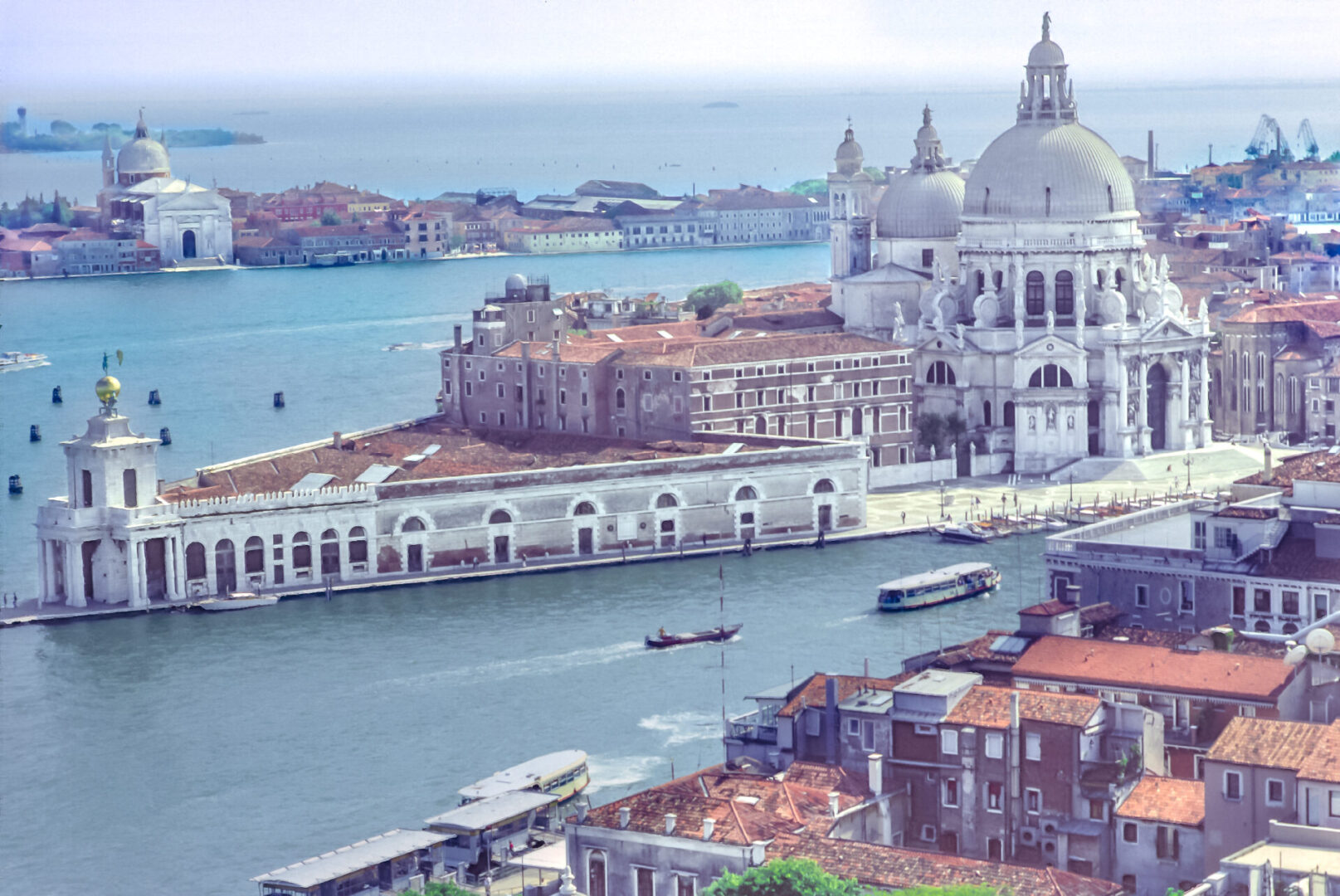
Let’s talk about incentive travel and why it matters to you.
Motivational corporate travel experiences with business results – that’s the definition of incentive travel in seven words.
But behind these seven words is an entire philosophy, methodology, and industry dedicated to this tiny yet mighty niche in global travel and tourism.
The principles of incentive travel also apply to personal leisure travel. It’s an approach that helps transform typical trips into remarkable, relevant, and resonant experiences.
So let’s dive into what is incentive travel, who is responsible for incentive travel planning, and which are the four key partnerships. (If this section gets a tad tedious, it’s okay to skip to the good part.)
Next, let’s get to the good part: first-class fun, epic events, and five-star fabulousness. We’ll unpack real-life examples from our proprietary framework in action, professionally and personally.
Then, we’ll explore how to apply this perspective and framework to your own travel itineraries in simple and easy ways.
Lastly, we’ll discover together why incentive travel matters to you and your meaningful travel experiences.
Ready? Let’s go!
Table of contents
What is incentive travel, what goes into a travel incentive, who is responsible for incentive travel planning, examples of incentive travel, how to apply incentive trip ideas to your travels, check out more recommendations, incentive travel definition.
Whether a Fortune 500 corporation or a small business, company executives and senior management surely want to encourage, engage, reward, and retain the best employees.
Business incentives are powerful tools to enhance and increase employee performance in tangible, measurable, and mutually beneficial ways.
Let’s say, for example, an automotive dealership has a sales goal to sell x number of cars by the year’s end.
So, the dealership management announces a sales compensation plan with precise parameters: Key performance indicators (KPI), metrics, timeframe, etc. They specify prizes to their sales team to reward, motivate, and inspire them to achieve and exceed the parameters.
These parameters are the qualifications; the prizes are the incentive.
The three traditional and most popular incentive programs are:
- Monetary incentives, i.e., cash
- Gift incentives of merchandise or gift card incentives with pre-paid gift cards
- Travel incentives, in other words, all-expenses-paid trips
The third and last category is the most powerful and meaningful of all: Incentive travel.
Incentive Travel Meaning
For corporate executives and senior management, incentive travel means engaged and enthusiastic employees performing at higher levels with a happier outlook. With measurable outcomes for the company’s return on investment (ROI) and better employee retention.
For the top corporate performers, the meaning is rewarding and inspiring travel experiences. The kind of moments, memories, and magic that only travel can deliver.
Similarly, for those employees who didn’t qualify this time, the incentive travel meaning is more motivation to go above and beyond for the reward next time.
Incentive Travel Benefits
Studies show that incentive trips for employees reward, motivate, and inspire to a greater degree than cash incentives, gift card incentives, or merchandise gift incentives for employees.
Additionally, travel incentives deliver longer-lasting satisfaction. Likewise, satisfaction enhances employee performance and increases employee retention.
Besides the benefits to the corporate employer and the incentive traveler, incentive tourism benefits countless businesses, communities, and people.
Two professional foundations for the incentive travel industry offer a wealth of academic research and case studies:
The Incentive Research Foundation focuses on research and education on merchandise gift incentives, gift card incentives, and travel incentive programs.
The Society for Incentive Travel Excellence ( SITE Global ) is the world’s only professional association solely and totally fixed on business incentive travel. That’s been the case ever since its founding as the Society of Incentive Travel Executives in 1973.
As a two-term SITE Chapter Past President, this writer can attest to these associations’ purpose, prominence, and importance to worldwide incentive tourism.
Together, the Incentive Research Foundation, SITE Foundation, and Oxford Economic s collaborate on a benchmark report for the incentive travel industry: the annual Incentive Travel Index.
The Incentive Research Foundation makes current and prior reports of The Incentive Travel Index available for free download.
If you’re interested in the benefits of cash incentives, Forbes Advisor evaluates the pros and cons with “Monetary Incentives in the Workplace” annual guide .
Surprisingly, incentive travel is the smallest segment of the global travel industry, both business travel and leisure travel.
Not surprisingly, given its elite niche, incentive tourism has the highest per-person spending across the tourism industry worldwide.
All elements of a business incentive travel program are strategic, purposeful, and intentional. Thoughtful care goes into every step: From preliminary research, consideration, and selection to program creation, operation, and successful conclusion.
Success ultimately requires strategic planning, creative vision, complex logistics, and trustworthy partnerships.
And also: Investment in the quality, service, and expense of incentive travel programs.
Speaking of which, let’s talk briefly about the incentive budget. Big or small, there is always an incentive budget to be approved, followed, and tracked.
Quality and service are paramount to the experience. But the expense also matters.
Because an incentive trip isn’t extravagance for extravagance’s sake or for bragging rights. It’s not a boondoggle.
A travel incentive is a defined benefit and measurable investment in employee performance, recognition, reward, and retention.
So, whether the program is for a global brand or a small independent business, the incentive budget is an essential factor for all the responsible parties.
Incentive travel is a highly specialized niche of the travel and tourism industry, with professionals at the pinnacle of experience and expertise.
Whether it’s for individual or group incentive travel, the program planning, production, and operations involve several layers of strategic and tactical partnerships.
Corporate Incentive Travel Planner
Firstly, corporate incentive travel planners are the end-user clients.
The corporate event planner typically works directly for the corporation, company, or small business that’s sending its top achievers and guests on the hosted trip. They are the final decision-makers.
The corporate planner, either an in-house salaried employee or a contracted consultant, often handles other business events and meetings for the firm.
Incentive Travel Companies
Secondly, incentive travel companies work both with end clients and key industry partners, particularly the two partners described below: the Destination Marketing Organization (DMO) and the Destination Management Company (DMC).
Services of incentive travel companies or incentive travel agents focusing on this elite industry niche include:
- Sales compensation plan, qualification, and results tabulation
- Incentive destination research, requests for proposals, and selection
- Hotel research, requests for proposals, and selection
- Destination Management Company (DMC) research, requests for proposals, and selection
- Airline ticketing
- On-site supervision of program operations
- Overall budget management of the incentive travel package inclusions
Incentive travel companies are sometimes called sales and marketing services or third-party management companies. Formerly, the terms incentive house or incentive travel house were in common use.
Besides employee incentives, these full-service firms handle recognition and award programs, customer loyalty programs, corporate meetings, motivational events, and more.
Destination Marketing Organization
Thirdly, Destination Marketing Organizations (DMO), also known as Destination Management Organizations and Destination Organizations, promote and support travel and tourism to their specific destinations.
The DMO is an official government organization or authorized agency responsible for promoting travel and tourism for a nation, region, province, state, city, etc.
The marketing purvey includes leisure travel and tourism, plus the sector known as MICE: the acronym for Meetings, Incentives, Conferences, and Exhibitions.
Besides leisure tourism, incentive tourism, business meetings, business events, conventions, and expositions, the DMO also supports major festivals and sporting events.
For incentive tourism, the Destination Marketing Organization provides services such as:
- Marketing collateral about the incentive destination
- Familiarization trips (fam trips) to show their destination to prospective buyers
- Site visit coordination for specific consideration and selection by decision-makers
- Requests for proposals (RFP) from its member hotels and other stakeholders
The terms Destination Marketing Organization, Destination Management Organization, and Destination Organization reflect contemporary usage. However, a DMO can go by another name, such as:
- State Tourism Office or Tourism Authority
- Convention and Visitors Bureau (CVB)
- Tourism Bureau, Tourism Board, or Tourism Commission
- Tourism Promotion Agency (TPA)
- Chamber of Commerce
To clarify, the DMO and its role are different from those of the DMC, which we’ll discuss next.
Destination Management Company (DMC)
Fourthly, Destination Management Companies (DMC) are the creative and tactical experts on the ground in incentive travel destinations.
Chiefly, the Destination Management Company partners with incentive travel companies on behalf of the corporate client. Occasionally in some cases, the DMC works directly with the corporate planner.
The Destination Management Company is responsible for designing creatively and delivering smoothly all the intricate program operations, from the first arrival to the final departure.
The DMC slate of services encompasses the complete spectrum, including:
- Airport transfers and ground transportation
- Daytime activities such as sightseeing incentive tours, team building, cultural experiences, and adventure excursions
- Corporate social responsibility (CSR) activity to give back to the incentive destination and its community
- Restaurant reservations and management for incentive travellers to enjoy the local restaurants on a dine-around evening
- Decor and entertainment for on-property events at the hotel
- Fabulous evening events at off-property venues
- Keepsake gifts
- Professional uniformed staff for all services, plus additional staffing requirements for the hospitality desk, incentive tour registration desk, coat check, and more
- Management and supervision of local destination suppliers, vendors, and partners
- Complete program coordination and on-site operations
The successful DMC must possess deep experience, broad versatility, and vast expertise in the incentive travel destination. Along with its own roster of professional local tour guides, transportation, and hospitality staff. As well as proven relationships with local suppliers, vendors, and providers.
With 20+ years in destination management, corporate events, and incentive travel, this writer describes the DMC’s roles and responsibilities as arguably the most demanding in the industry, equally challenging and rewarding.
Industry Associations, Certifications, and Accreditations
Membership in professional trade associations elevates and upholds the quality of people, businesses, and the industry as a whole through professional education and development, connections and networking, certification and accreditation, and advocacy.
Across the incentive travel industry, many in the community are – or should be – active members of SITE Global.
SITE Global offers two levels of certifications for incentive jobs: Certified Incentive Specialist (CIS) and Certified Incentive Travel Professional (CITP).
Certified Incentive Travel Executive (CITE) is under redevelopment at this time. Eventually, this writer expects SITE Global once again to offer three travel incentive certificates for job positions up to senior management.
Destinations International ( DI ) is the world’s leading and largest resource for Destination Marketing Organizations.
DI certifications are Professional in Destination Management (PDM) and Certified Destination Management Executive (CDME). Its accreditation is the Destination Marketing Accreditation Program (DMAP).
The Association of Destination Management Executives International ( ADMEI ) is the premier association for the global DMC industry.
ADMEI certification is Destination Management Certified Professional (DMCP). Its accreditation is Accredited Destination Management Company (ADMC).
This writer, after serving four terms on the ADMEI Certification and Accreditation Board of Directors, affirms the rigorous criteria and core competencies required.
These are the gold standards for incentive travel planners and incentive travel companies to seek in their Destination Management Company partnerships.
To imagine what an incentive travel program might look like, let’s unpack three signature pillars of Spotlight Sojourns’ proprietary framework:
- The EXCLUSIVE
- and The WOW
This writer and this photographer describe three real-life examples, all from our first-hand experiences and events.
Additionally, this writer and this photographer apply the exact same frameworks for our meaningful travel and storytelling as The Hidden Gemologists .
Incentive Travel Example: The UNIQUE
Firstly, let’s clarify The UNIQUE: Something that’s proven and popular, but with a twist to transform the tried and true into one of a kind.
Now, let’s consider a real-life example of The UNIQUE in action.
The UNIQUE Incentive Tour
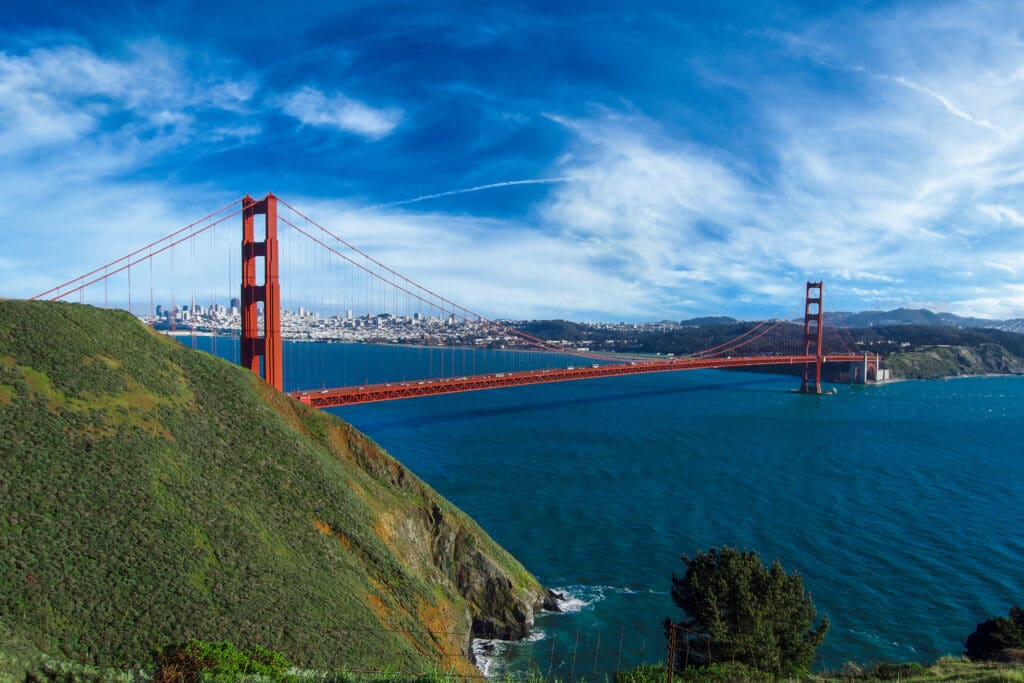
You’re excited to explore on your first full day in San Francisco, California. But this is no humdrum bus tour with canned narration.
Because you’re an incentive traveller. And today, your group incentive tour introduces you in style to the City by the Bay.
Get ready to enjoy this world-famous city’s best sightseeing, local culture, and authentic tastes.
You ride in quintessential San Francisco style aboard a private motorized cable car with a top-notch professional tour guide onboard. A personalized fleece jacket and logo blanket keep you warm and cozy in the inevitable fog.
Splendid sights unfold before you: The gorgeous Golden Gate Bridge. Colorful 19th-century Victorian homes known as “Painted Ladies” on Postcard Row. San Francisco City Hall with a golden dome taller than the nation’s Capitol.
Distinctive neighborhoods welcome you: Italian North Beach with la dolce vita spirit. Chinatown, the historic “city-within-the-City.” Haight-Ashbury, with 1960s Summer of Love vibes. Of course, the waterfront attractions of Pier 39, Fisherman’s Wharf, and Ghirardelli Square.
At sightseeing stops and scenic photo ops during the tour, the professional uniformed staff greet you with the white-glove treatment.
You sample traditional treats. Skip the lines. And learn fascinating true stories of “Everybody’s Favorite City.”
When this delightful day draws to a close, and the motorized cable car brings you back to the hotel, there’s no doubt: You’ve left your heart in San Francisco.
Incentive Travel Example: The EXCLUSIVE
Secondly, let’s understand The EXCLUSIVE: Something that’s available here and nowhere else, or only at this particular time, or is original to this location.
Now, let’s envision the EXCLUSIVE in exciting action.
The EXCLUSIVE Team-Building Event
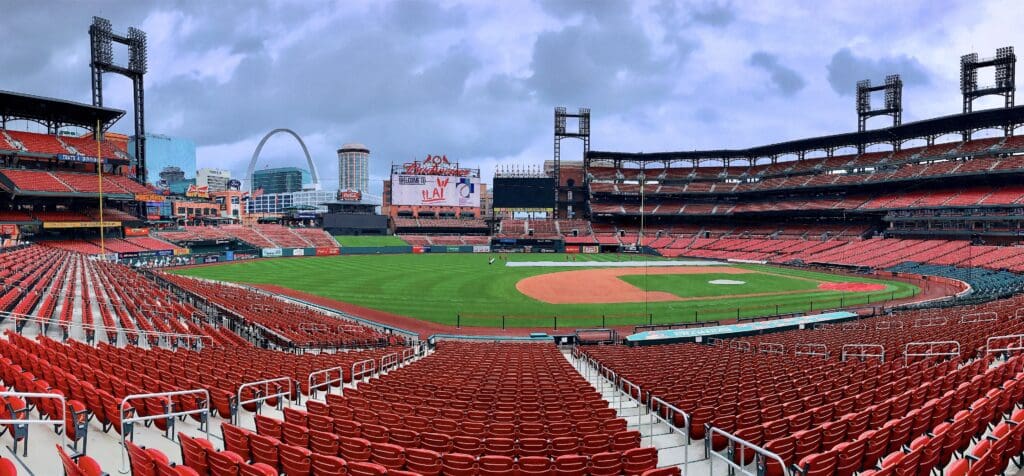
The landmark Major League Baseball stadium swings its gates open to you. But this is no public game day.
Because you’re the All-Star. And this afternoon, this stadium belongs exclusively to you and your team.
The team mascot welcomes you with a classic photo op. In your customized team jersey, you certainly look the part of an MLB player.
Then you explore the clubhouses, dugouts, press room, and other off-limit areas on a behind-the-scenes private guided tour. It’s a thrill to hear little-known baseball stories and see the World Series Trophy up close.
Next, your fantasy baseball dreams come true at batting practice with the team coach. Hey, slugger, that’s you on the scoreboard!
Bistro-clad servers and chef stations dish up ballpark favorites and gourmet cuisine. Micro-brewed beers, fine wines, and craft cocktails flow freely.
When this terrific team building experience comes to an end, the private luxury motorcoach whisks you and your teammates back to the hotel.
It’s a game-winning home-run hit for the memory books.
Incentive Travel Example: The WOW
Thirdly, let’s embrace The WOW: Something that pulls out all the stops, makes an impact, and leaves a lasting impression.
Now, let’s illustrate The WOW of a singular and spectacular soirée to remember forever.
The WOW Gala Event
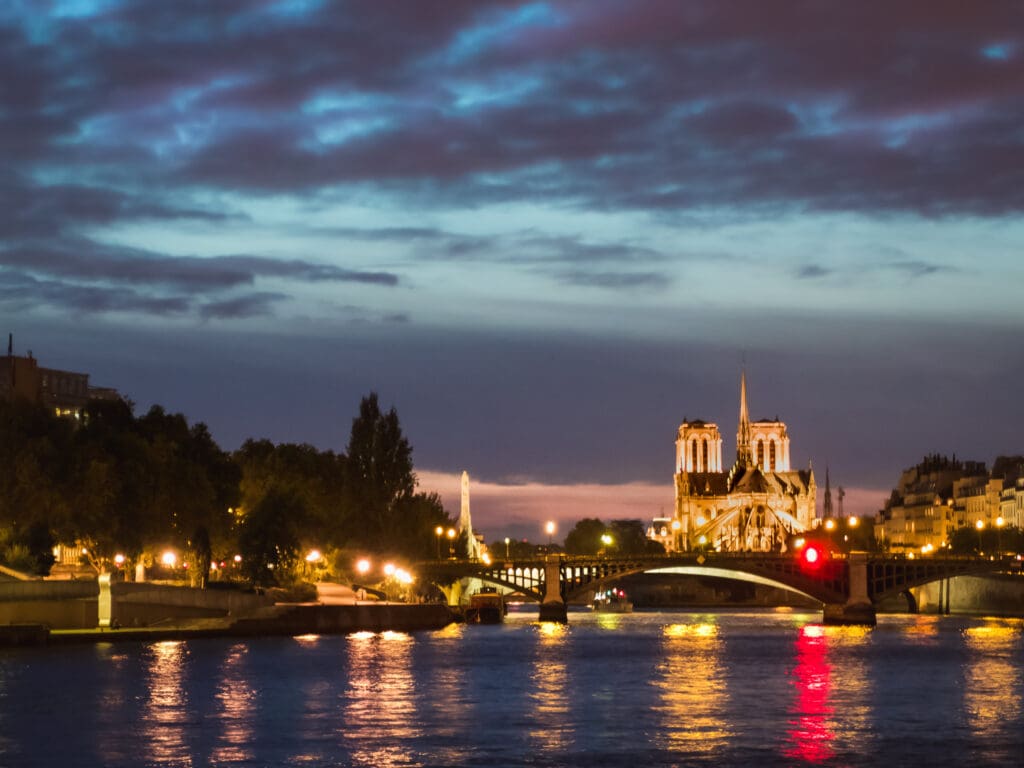
You’re dressed to impress for your farewell fête, a private dinner cruise in Paris, France. But this is no typical tourist boat.
Because this is an extraordinarily posh private motor yacht custom-built for royalty. And tonight, you rule the River Seine.
Violinists serenade as the Michelin-starred chef and tuxedo-clad stewards serve a multi-course feast prepared freshly onboard in the galley.
With each mouth-watering course, the master sommelier introduces a perfect wine pairing.
Later as midnight nears, you raise a flute of Champagne on the yacht’s aft deck, under the black velvet sky and sparkling stars.
Finally, the Eiffel Tower dazzles and delights with its legendary light show. What a fairytale finale to this glorious gala event.
“Wow,” you whisper when disembarking from this once-in-a-lifetime event, “I can’t wait for the next trip!”
Finding The UNIQUE, The EXCLUSIVE, and The WOW may seem easy in glamorous incentive travel destinations. In opulent hotels and luxury travel trends. And yes, in extravagant and expensive experiences like the above examples.
But setting big budgets, big cities, and all-expense-paid awesomeness aside – regardless, it’s important to realize there’s something special to discover everywhere.
So let’s look at a few incentive trip ideas to elevate and enhance your own travel experiences.
The following suggestions may spark your imagination anew while you or your travel advisor plan your trip itineraries.
Incentive Trip Ideas: The UNIQUE
As shown above, The UNIQUE is a twist on something that’s tried and true, proven and popular.
Let’s imagine how to apply The UNIQUE to your own meaningful travel without breaking the bank.
For instance, when arriving at a new destination for the first time, it’s a great idea to familiarize yourself with an introductory sightseeing tour.
Now, let’s add a little seasoning to the basic ingredients.
Using San Francisco as an example, here are two ideas for public tours:
The Hop-On / Hop-Off sightseeing tours are a favorite and fun way to sightsee. With the extra bonus opportunity to hop off and explore an area, then hop back on another vehicle.
A small group guided tour makes the sightseeing more personal. Choose one with a theme, like the San Francisco Filming Locations tour .
Incentive Trip Ideas: The EXCLUSIVE
As noted earlier, The EXCLUSIVE is found only in this one place, available at this certain time, or is original to this specific location.
Perhaps you’re going to travel through Europe, where the United Kingdom and European Union regulati ons protect the quality, characteristics, and “traditional know-how” of specific products.
The EU acknowledges the heritage of agriculture, viniculture, and gastronomy with the Protected Designation of Origin (PDO) and Protected Geographical Indication (PGI) for food and wine, as well as the Geographical Indication (GI) for spirits.
Similarly, North America recognizes distinctive Wine Appellations of Origin with official American Viticultural Areas (AVA) in the United States; and Vintners Quality Alliance (VQA) in Canada.
So The EXCLUSIVE may incorporate a cooking class with the local gastronomy or a wine tasting with regional wines.
Or perhaps The EXCLUSIVE takes you to a cultural landmark, like the breathtaking medieval monasteries of Meteora in Thessaly, Greece .
In fact, you can even build an entire travel itinerary around The EXCLUSIVE: Like the 8th wonder of the world, the Erie Canalway in New York State. Or the ultimate epic road trip in the United States, Route 66 .
Incentive Trip Ideas: The WOW
All in all, The WOW aspires to ensure a highlights reel for your memories. Whether it’s razzle-dazzle or simple and sweet, The WOW is an experience to re-live and a story to re-tell.
Maybe that means tickets to the theatre or the performing arts – a Broadway-style show, the opera, ballet, or symphony concert.
Perhaps it’s a wonderful meal beyond the ordinary: Coveted reservations to a white tablecloth restaurant or Michelin star hot spot. Or at a beloved historic establishment open for decades.
Sometimes it’s the idyllic ambiance of a picnic in the park or on the beach at sunset – the effortless ease poet Omar Khayyam depicts as “a jug of wine, a loaf of bread, and thou beside me.”
In conclusion, incentive trips for employees reward, motivate, and inspire top achievers through strategic, purposeful, and immersive travel experiences.
These programs are designed to enhance employee performance, improve employee satisfaction, increase employee retention, and deliver a return on investment.
Planning, production, and operation thus must accomplish the key objectives to reward, motivate, and inspire incentive travellers by:
- Elevating their experiences.
- Engaging their senses.
- Creating remarkable, relevant, and resonant memories.
A travel incentive is, therefore, the ultimate meaningful travel.
So, incentive travel matters to you because you can apply this same concept to:
- Elevate your experiences.
- Engage your senses.
- Create remarkable, relevant, and resonant memories.
With this purpose in mind for your own meaningful travel experiences which will:
- Broaden horizons, create connections, and deepen understanding.
- Seek beauty and find joy wherever you are.
- Collect moments that echo in memory.
- Create stories that become part of your legacy.
Because meaningful travel is part of a meaningful life. And stories enrich the meaning.
FURTHER READING: Incentive Travel: For a New World by Patrick Partridge
- Famous Landmarks in Greece to Visit in All 14 Greek Regions
Erie Canalway: Add This to Your Travel Bucket List
Route 66 Start to Finish: The Ultimate Epic Road Trip
GET: Now that you’ve heard some incentive travel examples to elevate and enhance your own travel experiences, get your exclusive free guide to tell your travel story simply and easily.
Yes, I want my guide!
Incentive travel programs are designed to reward, inspire, and motivate employees to achieve and exceed corporate objectives.
The award-winning top performers earn an all-expenses-paid incentive trip. The most popular format is a group incentive travel, where the winners and their guests visit the incentive destination together.
Other formats are incentive trips for individual couples and family travel incentives.
Whether for an individual couple or a group incentive travel program, a travel incentive comprises a complete package to, from, and within an incentive travel destination.
The incentive travel package typically includes some or all of these services: Round-trip airfare and airport transfers, hotel accommodations, an incentive tour, and other daytime activities, hosted meals and evening events, as well as keepsake gifts for the incentive traveller.
Studies show that incentive travel programs reward, motivate, and inspire employees more than cash incentives, gift card incentives, or merchandise gift incentives for employees.
Incentive trips for employees enhance employee performance and increase retention due to greater anticipation and longer-lasting satisfaction than cash awards, gift card incentives, or merchandise gift incentives.
So, incentive travel programs benefit both employees, management, and also the corporate business overall.
All opinions expressed are Spotlight Sojourns’ own.
When you book or make purchases through some links, Spotlight Sojourns may receive a small commission at no extra cost to you. Thank you for using our affiliate links which support original writing and original photography for you.
Featured Posts
- One Word Resolutions for the New Year
- Greek Landmarks Off the Beaten Path to Visit
- Christmas in Lisbon: Best Things to Do in the Festive Season
WORDSMYTH CREATIVE CONTENT MARKETING LLC
- Sep 20, 2022
What is Incentive Travel and How Can You Make It Work for Your Brand?
Incentive travel is one of the most effective ways to motivate employees, improve company culture and build customer loyalty. When done correctly, incentive travel can also help retain top talent and boost sales . But what is incentive travel, exactly? And how can you make it work for your brand?

What is Incentive Travel?
The Incentive Research Foundation defines incentive travel as "a program that rewards individuals or groups of employees for meeting or exceeding predetermined goals or objectives." In other words, an incentive travel program is a way to thank employees for their hard work and dedication. It's a motivational tool that helps employees feel appreciated and encourages them to do their best work.
Incentive travel is one of the most effective ways to reward top performers and increase sales team productivity. The Incentive Research Foundation found that incentive travel programs have a return on investment (ROI) of up to 112%. With such a high ROI, there is bound to be a way to make this work for your brand.
Incentive travel can be used as a retention tool, especially for millennials who have struggled with job hopping. Incentive travel is often confused with business travel or corporate travel. However, there is a big difference between the two. Business travel is necessary for work, while employee incentive travel is a perk or reward.
The IRF points out that incentive travel can boost sales and employee satisfaction when done correctly. The key to incentive travel is that it must be planned and executed to meet the company's goals and objectives. It should be an enjoyable and memorable trip, not just a group trip to a big city.
Why Does Incentive Travel Work?
There are four main drivers of motivation for employees, according to Viktor , the expert in incentive travel. One driver is the acquisition of valuable material goods or experiences. Expedia and The Center for Generational Kinetics survey showed that 74% of Americans value experiences over products or things . This is what incentive travel does best. By offering employees the opportunity to travel to unique travel destinations and experience new things, they are more likely to be motivated at work.
Another driver of motivation is the need for social recognition. Corporate incentive travel gives employees a sense of accomplishment and recognition from their peers. This can be a powerful motivator, especially for millennials who crave social validation. As a 2019 study found, 79 percent said that an increase in recognition rewards would make them more loyal to their employer.
The third driver of motivation is the desire to feel competent and in control. Incentive travel gives salespeople a sense of autonomy and responsibility. This is especially true if they are allowed to help plan the trip or choose the destination. The pandemic shifted our interest in travel destinations, and earners should be included in choosing travel plans.
The fourth and final driver of motivation is related to self-actualization, or the need to feel like you are doing something that has meaning. Incentive travel can help employees feel like they are part of something bigger and that their work is valuable. This is a key driver of employee engagement.

Why Should My Company Have an Incentive Travel Program?
In simplest terms, you should have an incentive travel program because 100% of the best-in-clas s companies have a robust travel program. What makes a company best-in-class? The IRF says that companies with the highest employee retention and sales growth are deemed best-in-class. In other words, the best of the best use travel programs to motivate their employees.
There are many reasons travel incentive programs work so well for employee retention. For one, it shows employees that they are valued. A study by the SITE Foundation found that 88.6% of employees who went on an incentive trip said it made them feel more valued by their employer.
Incentive travel also creates lasting memories and bonds between employees. These bonds are essential for team building and developing a strong company culture. According to a study by the Event Marketing Institute, 86% of people who went on an incentive trip said it strengthened relationships within their organization.
Finally, incentive travel is an effective way to engage employees and get them excited about your company's goals. A study by Deloitte found that companies with engaged employees outperform their peers by 202%. In other words, incentive travel is not just a nice perk for your employees; it's good for business.
How Do I Create an Effective Incentive Travel Program?
There are four steps to creating an effective incentive travel program. The first step is to define your goals and objectives clearly. What do you want to accomplish with your incentive travel program? Do you want to increase sales, improve employee retention, or engage your top talent? Once you know your goals, you can start planning the trip.
The second step is to choose the right destination. This may seem like a no-brainer, but picking a place that will excite your employees and align with your company culture is essential. Many incentive travel companies can help you plan the perfect trip if you're unsure where to start.
The third step is to create a budget. Incentive travel can be expensive, so it's important to set a budget and stick to it. There are many ways to save money on incentive travel, so don't be afraid to get creative.
The fourth and final step is to promote your incentive travel program. This is where event planners come in. Event planners can help promote your incentive travel program and get employees excited about the trip. They can also help with the logistics of planning and booking the trip.

Where Do Employees Want to Go?
Incentive travel aims to provide an exceptional experience for business travelers. It's no longer enough to fly to Vegas for a weekend; employees need and deserve a relaxing and rejuvenating trip. The IRF says that 88% of respondents said that being given time to relax was the most important thing they wanted in incentive travel.
When the IRF study asked where they hoped to go, the top three responses were a beach getaway (or somewhere with sunshine), adventure and experiential travel, and the mountains. There were some major shifts through their data from 2021 to current, with a wellness spa experience now in the fourth position of destinations for an incentive travel program.
If you're looking for a way to incentive your employees, incentive travel is the perfect solution. Incentive travel is an excellent way to engage your employees and show them how much you appreciate their hard work. It's also a great way to build team morale and strengthen relationships within your organization.
How to Make Incentive Travel Work for Your Brand
Incentive travel is a rising trend, and it's essential to know how to integrate it with your business and brand. The move away from cash bonuses is rapid, with employees looking for alternate sales incentives.
Non-cash rewards often create a more significant motivating factor. Studies show that cash bonuses are forgotten quickly, whereas incentive travel experiences create lasting memories. These memories act as motivational tools and can engage employees for years.
Incentive travel also allows you to focus on company culture and values. It's an excellent way to build team morale and strengthen relationships within your organization through team-building activities. When done correctly, incentive travel can positively impact your bottom line.
If you're looking for a way to incentive your employees, channel partners, or customers, incentive travel is the perfect solution. Working with an experienced event planner who understands how to integrate incentive travel with your brand and business objectives is important.

What Does Incentive Travel Mean for the Travel Industry?
The incentive travel industry is booming with the rise in the popularity of incentive travel. As more companies adopt incentive travel programs, the demand for experienced event planners will continue to grow.
Event management and the travel industry often go hand in hand. Event planning is a great place to start if you're looking to get into the incentive travel industry. Many event planners have a background in the travel industry, which helps them understand the ins and outs of incentive travel.
Travel agencies can take advantage of this trend by shifting their focus to corporate events and group travel. It's important to understand your clients' needs and what incentive travel means for their business. This means working with event planners to develop incentive travel programs that align with company objectives.
Wordsmyth Creative Content specializes in travel industry marketing, perfect for your agency that wants to increase sales by harnessing recent trends. We have the experience needed to direct traffic toward your website, resulting in a boost in clients.
- Travel and Tourism
Recent Posts
Tips for Effective Email Marketing in the Travel Industry
SEO vs SEM - Which is Best for Boosting Your Travel Business?
Crafting Irresistible Narratives: The Secret Ingredient for Restaurant Success
You are using an outdated browser. Please upgrade your browser to improve your experience and security.

- Events Portfolio
- Conferences & Meetings
- Incentive Travel
- Awards & Special Events
- Virtual Events and Hybrid Events
- Team building & Training
- Venue Sourcing
- Event Technology
- Attendee Management
- Travel Management
- Strategic Meetings Management
- Entertainment Travel
- Case Studies
- Event Travel Management Blog
- Event Travel Management News
- Contact ETM
Local solutions, delivered globally
ETM provides local service solutions to customers around the world. Please select your local region, and start experiencing the ETM difference!

26 August 2021
A guide to incentive travel programmes and experiences
Incentive travel is a way for companies to reward their top-performing employees with a vacation or trip, paid for by the company. many corporations use incentive travel to recognise their top employees or to drive sales through non-direct employee channels such as insurance agents, car dealers, or direct sellers., what is incentive travel .
At the most basic level, incentive travel aims to boost employee performance and engagement, while driving business goals . Incentive travel can be a group trip or an individual vacation for your top employees and their spouses or family. Trips can be a blend of leisure and professional development time.
What are the benefits of incentive travel to employees?
Travel delivers two major benefits to your achievers:
- Lasting memories and stronger relationships. Incentive travel experiences build a lasting memory that directly correlates to the achievement. Group travel often provides achievers with quality interactions with the host organisation’s leaders and other top achievers, building key relationships. Achievers are more likely to remember a private viewing of the Sistine Chapel, a trip to the Panama Canal, or a beach volleyball game with their CEO more than how they spent their last bonus or merit increase. Research studies show that these lasting memories encourage continued achievement.
- A better support network. When organisations allow spouses or families to attend the travel programmes, it also helps the achiever build their support network at home. Families understand the achiever’s drive and encourage their hard work when they also experience the benefit.
What are the benefits of incentive travel to organisations?
- Performance and productivity gains – particularly amongst mid-level performers. Mid-level performers have the potential to become high performers. According to the Incentive Research Foundation (IRF), the potential performance gains from your “middle 80%” of employees are likely more significant than your top 10% of performers. When a corporation successfully shifts these mid-level performers towards higher rather than low performance, incremental productivity delivers ROI.
- The magic of gratitude and increased loyalty. Incentive travel is a reward and recognition programme designed to motivate and show gratitude to performers that rise to the challenge set by the programme. Appreciation often drives connection and engagement. Incentive travel programmes can build loyalty with employees, customers, or any other target incentive audience.
How do organisations create and structure incentive programmes?
Many organisations opt to have tiered incentive programmes, which help to drive achievement at multiple levels. For example, perhaps only the top 1 – 3% earn a travel incentive. In comparison, the top 10% earn other types of incentives, including merchandise and gift cards.
In the past, it was also common for organisations to tier their travel incentive offering. Perhaps a top achiever would go on a long-haul, “once-in-a-lifetime” trip, whereas lower tiers would go on shorter trips closer to home. Another option is to tier a single trip where top earners fly first class, receive suite upgrades, or attend a completely exclusive event during the trip, such as a private picnic on top of a mountain accessible only by helicopter.
More recently, we are seeing organisations opt for individual incentive travel options in which achievers can choose from either a pre-arranged trip or receive a travel voucher and create a customised trip.
How is an incentive programme implemented?
Corporations often use incentive travel companies with expertise in this area who can assist with implementing some or all components of an incentive travel programme, which includes the following steps:
- Set goals. Outline your goals for your programme, including ROI. For example, a sales team incentive trip might be generating a set number of new leads, or increasing sales amongst a target market or vertical.
- Outline rewards and rules. The rewards should be compelling enough to be motivating and align with the objective. Clearly stated rules also help to avoid disappointment and surprises when a performer earns (or doesn’t earn) the reward.
- Launch. The best incentive programmes include a launch strategy that clearly outlines objectives, rules, and rewards along with an ongoing communication campaign and tracking system so that performers know where they stand. Communications remind the audience pool about the incentive, and tracking systems allow your audience to know where they are in the running to receive the incentive, so they continue to perform to reach the goals you’ve outlined.
- Deliver rewards. Delivering the reward is the crux of the programme and must be done professionally. Each earner has worked hard to achieve the reward, and they should receive it in a way that demonstrates the proper level of appreciation. Incentive professionals design the overall attendee management experience starting before attendees leave their homes, during the trip and right until they return home. An incentive trip that is poorly executed produces a negative attendee experience and can be demotivating – the opposite effect of the trip’s goal.
The bottom line? Incentive travel programmes are an investment that enhances performance, fosters loyalty, and inspires your achievers – a win/win scenario for corporations and their employees.
Motivate your employees to maximum performance
Want to know more about incentive travel programmes.
Take the stress out of event management with our expert event planning team.
Related Articles

How incentive travel programmes drive performance & growth

Celebrating the value of in-person business events and meetings

Do business events and meetings strengthen company culture?
THAT AVIATION'S BLOG
Latest news and information on travel, trends, aircraft and air chartering, when, why and how to organize an incentive travel.
- November 14, 2019
WHAT ARE THE PURPOSES OF AN INCENTIVE TRAVEL
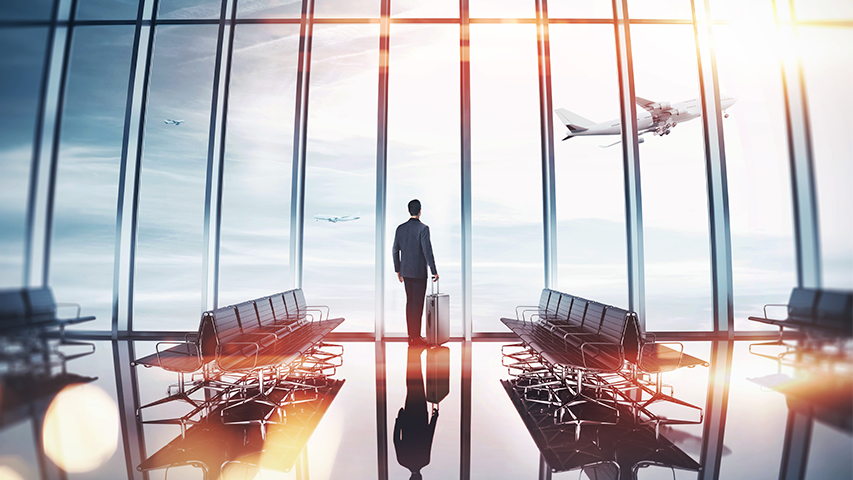
What does an incentive travel mean? What are incentive travel programs and why do companies invest part of their budget in this direction?
“An incentive travel , or incentiv e, is a company management tool that motivates employees , external collaborators (eg agents and representatives) or company clients in order to increase and/or to improve the productivity/sales. “
This definition taken from Wikipedia helps us to describe this important tool used by companies to stimulate their employees/clients towards achievement of goals set in their planning. This is a marketing strategy , a very effective motivational tool , which involves various sectors hotels, restaurants, tourism and transport (in particular that of aviation and of charter flights ) and which represents an important market segment whose trend, after a period of stalemate, is again positive and in continuous and constant growth.
In this article, we will try to explain the importance of this segment of the Tourism , the trends and the best travel destinations most requested in 2020; how to organize an incentive travel and how That Aviation Italia can make an important contribution in the realization of a successful event.
1) Why invest in an incentive trip to reach the company goals?
2) Incentive, Team Building, Convention & Co. What are the market data?
3) How to organize at best your motivational event?
4) What are the 2020 most requested incentive travel destinations?
5) What are the most used means of transport for an incentive?
6) How THAT! can make the difference in the organization of a dedicated charter flight?
Why invest in an incentive trip to reach the company goals?
An increasing number of companies use part of their corporate budget for events such as conventions , team building and incentive travel .
Why use part of your budget , which can also be rather significant, t o organize an “ all-expense-paid trip ” for your employees, external collaborators or for your clients? Simple, because an incentive trip is an investment that improves the productivity of the company.
Of course, it costs, but this sort of travel is a real investment in the most important capital of the company – the human one.
And, as we know, companies are not made only of products and services, but first of all they are made of people who, with their contribution, make the difference.
This is why companies invest in this type of travel as a motivational tool. And it is known that a motivated employee or a client, achieves better results.
But incentive is also able to stimulate other factors that affect profitability and production: it makes the individual members feel part of a team.
Every person involved feels part of a larger project and becomes aware of his role within the overall design, it gives an individual sense of responsibility towards the same company or reinforces it.
The prestige of the Brand becomes a matter of which each one feels responsible for and the improvement of the reputation and of the success of the company/Brand becomes a personal goal. All in a teamwork perspective. Another key factor is the loyalty program . A satisfied client or an employee who feels appreciated has no reason to look for an alternative. They will remain close to the company.
Therefore, to sum it up, what are the advantages of an incentive trip ?
- It increases work motivation of employees, external collaborators, clients;
- It creates the sense of belonging to a working group ;
- It encourages the teamwork ;
- Increases the sense of responsibility at work;
- It establishes the prestige of the Company and the growth of its reputation ;
- It helps to build the loyalty of the clients, employees, external collaborators;
- It improves production, sales and increases profitability results.
Therefore, seen in this light, are we sure that business incentive trips must be included in “costs”?
Continue reading
Incentive, Team Building, Convention & Co. What are the market data?
After a difficult period, due to the economic crisis, which created a stalemate in the sector, in the past two years the market has resumed a growing trend, and now, growth became really significant.
To confirm it there are data declared by the most authoritative national Incentive Travel Agencies .
Italian companies have returned to planning incentive trips and, above all, events with large number of participants .
The aspects related to gratification and the results obtained from the investment in incentive trips , show profound and long-lasting positive effects.
The “secret” lays in creating a trip that can be transformed into unique experiences, with a range of activities that the participants would not be able to live if they had travelled on their own.
The scheduled appointments must be connected to each other and lead the group to create a continuity in the lived experience, which should be able to involve and to amaze, and which would be different from what they could have experienced if they visited the destination on their own.
Today’s public wish to live the place in a profound way, they want to be involved on an emotional and introspective level . Therefore, the choice of the activities proposed during the event becomes crucial for the involvement and achievement of success: the experience must be “unique”.
A recent research conducted by the Incentive Research Foundation ( IRF ), the Society for Incentive Travel Excellence ( SITE ) and the Financial and Insurance Conference Professionals ( FICP ) together with Oxford Economics highlight interesting data detected by Incentive Travel Agencies involved.
Here are some of the most interesting questions:
a) What are the most important advantages that your company records from incentive travel programs?
- 55% – increase in sales and/or in profits following an incentive travel;
- 34% – increase in individual productivity ;
- 32% – greater commitment to teamwork ;
- 27% – improvement of relationship between company management and employees .
b) What is the approximate cost per person (total cost of the program divided by the number of people) for incentive trips scheduled in 2019 your team was responsible for?
- North America – $ 4,206.00 *
- Western Europe – $ 2,483.00
- Other – $ 2,816.00
* Take into account the historical lack of critical alternative infrastructures into the US air travel. The rail network is not widespread and well-structured as in Europe, and travel is mainly by air.
c) Assuming that there are no two equal incentive programs, how is the expenditure budget divided into the incentive program?
- 29% – Hotels
- 22% – Air transfer
- 21% – Food and Beverage
- 15% – Scheduled activities
- 9% – Land transfer
- 7% – Other
d) How have the numbers of an incentive trips participants (staff, guests and other participants) in 2019 changed compared to the last year?
- 35% – From +1% to +10%
- 12% – From +11% to over +20%
- 32% – no change
- 10% – From +1% to -5%
- 14% – From -6% to over – 20%
e) Which are the most important costs you foresee in the next two years (2020/2021) that will affect spending per person in the organization of your incentive trips ?
- 63% – Hotels Cost
- 56% – Cost of transfers airplane
- 54% – Food and Beverage
- 44% – MICE Travel Destinations
- 20% – the program duration ;
The following items are of particular interest:
- 35% – Luxury location
- 11% – Luxury aircraft
f) What actions is your Incentive Travel Agency undertaking in order to be more competitive and offer added value to your travel plans ?
- 73% – Offering exclusive and unique experiences
- 36% – Greater assistance and services at the same cost
- 35% – Higher service offer
- 34% – Discounts proportionate to the number of confirmed incentive programs
- 32% – Flexibility of payments
g) What are the key elements that made your clients contact your Incentive travel agency ?
- 66% – Reputation
- 60% – Creativity and innovation of proposed programs
- 59% – Skills and prompt responses to the requests
- 53% – Reliability and former relationship
How to organize your motivational events at their best?
It is possible to be confused between two very similar terms but with a completely different meaning: Incentives and Incentive Travel .
An incentive is an economic reward, a gift. An incentive trip is not only a reward, but it is an experience and, as such, it is unique and unrepeatable . A trip is an incomparable thing.
There will always be someone who makes a more expensive gift or a higher discount, but two trips are never comparable because they are always unique and therefore far more effective from a gratification point of view.
In fact, according to numerous industry researches, over half of the employees (and also clients!) prefer an incentive trip to any other corporate benefit. But in order to be remembered as a “unique experience”, an excellent organization of the trip is not enough, it must be surprising, memorable and extraordinary.
An Incentive trip can be organized directly by the Company, if it has a specific department in charge. Otherwise it is possible contact a specialized incentive travel agency , which with its professionalism and knowledge, will offer the best solution according to the client’s expectations and available budget. And in Italy, we have the top agencies!
But what kay steps must be made in order to organize a successful event ?
a) The choice of the destination Don’t be afraid to experiment with new destinations. Do not be repetitive in the proposal otherwise the “prize” will become less desirable and will make the magic of discovery fade. You can range in the choice and opt for a national or medium/long-range event. A new and different experience allows us to connect the name of the Brand to the moment lived (for example, a good lunch), to the location and to the event itself. Obviously, the choice also depends on the budget, the duration and the number of participants.
b) Establish the right date Choose a date that does not coincide with a holiday or a holiday period, so as not to embarrass your guests and risk not having the desired feedback. Furthermore, evaluate the period according to the climatic conditions of the chosen destination and define the event in a period in which the absence of your employees/customers does not excessively damage productivity or sales. Choosing the right date is not an easy task and it could take time and patience but, crossing some data, your team and/or Incentive Travel Agency will certainly find the most congenial one.
c) Create personalized offers for your guests Find out about the tastes and habits of your guests in order to find a formula that everyone can enjoy. If, for example, the participants are a mixed team in which some members are sport fans while others do not like physical activities and prefer to visit monuments, make sure to choose a destination that can offer both possibilities. If, instead, your purpose is to encourage your guests to spend more time together, propose common activities in which everyone can feel at ease. Choose from formulas like with a stay in Hotel , Residence , resort or Touring , if you are thinking about several stops to visit. If your guests are football fans, combine your incentive trip to an expected and heartfelt match; if they are passionate about food and wine, propose them a tasting of fine wines. In short, try to create a special experience that remains etched and that links the company’s Brand to a particular moment you are offering them .
d) Organize your incentive trip step by step, setting yourself precise goals What do you want to achieve with your incentive trip ? Do you want to present your latest product through a convention ? Do you want to increase cohesion within your team ? Do you want to reward your clients (or collaborators) for achieving an exceptional result? Always keep in mind the purpose of your event and build the agenda of activities based on the motivations that led you to invest in the organization of your incentive trip . The answers to the goals you set will lead to different solutions to reach the goal and to create an effective return and general satisfaction.
e) Create unique experiences Propose experiences that your guests could not live if they visited the destination on their own. Forget the standard guided tours and opt for a creative solution, perhaps in a vintage car! Offer a gala dinner in a renowned starred restaurant maybe prepared by a renowned chef nor accompanied by entertainment with well-known characters that guests would never expect to see live and so closely. Never forget that an incentive trip has a motivational purpose (to increase productivity): no one feels motivated by a situation that has nothing new and surprising.
What are the most requested 2020 incentive travel destinations?
What are the most important considerations to make when choosing an incentive trip destination? We have just seen that the choice of the destination is very important because it must be attractive to the guest and because it must be able to offer the right alternatives of experiences to be lived , based on heterogeneity of the participants.
Beyond these factors, it is also important to consider other factors, such as:
- The security of the participants It is evident that it is necessary to consider the political stability of the chosen destination. A classic example is Egypt which in the early 2000s was one of the most favourite incentive destinations, and which for a long time was then set aside due to the unstable situation. Now, fortunately, it has returned to be safe and the country again an increasingly growing tourist destination .
- Qualified infrastructures A good offer of high-level infrastructures is indispensable for the organization of a successful event . These locations must be able to satisfy the aesthetics, comfort and pleasantness of the staying – better, if it gives the luxury feeling – as well as the most purely working aspect like the availability of a conference room roomy with efficient technological equipment , etc. Carefully choose the accommodation facility and consider also the presence of a SPA , a wellness centre and a gym , in order to allow your guests to have the opportunity to enjoy moments of total relaxation .
- The distance and the flight hours, necessary to reach the destination
- When planning an incentive program, it is important to take into account the flight hours necessary to reach the chosen destination. If the project is a three-day stay, a long-haul destination that requires many flight hours it certainly is not the most congenial solution. Make an accurate assessment of the aviation and land transfer hours and follow the advices of the sector experts – like That Aviation Italia or other agencies specialized in incentive travel – which will suggest the destinations that best suit the purpose of the trip, taking into account your planning requirements.
On that note, the 2020 most highly requested incentive destinations for That Aviation Italia are short/medium haul flights. Specifically, the most popular are:
- Marrakech ;
- Reykjavík .
What are the most used means of transport for an incentive?
If the choice of a destination and of a location are highly important for the success of your corporate event , but no less important are the care and the choice of means of transport and of logistics . Transports are part of the reservation and of the organization which is prior to the stay and are absolutely fundamental not only from a logistical point of view but also from the emotional one.
Let us never forget that an incentive trip among its purposes has that of creating a strong spirit of belonging, of sharing and group . This mechanism triggers upon departure , from the moment of check-in and of the luggage delivery .
The choice of the means of transport is , therefore, very important because it is from here that you begin to build the success of the event .
It is necessary to be methodical, coherent, to have a “ roadmap ” and, at the same time be ready to face unexpected situations (last minute changes, non-standard requests) with elasticity and capacity of problem solving .
That is why many Incentive Houses rely on THAT! for the flight’s management of those incentive trips they are in charge of!
And this task is not only limited within the choice between scheduled flights, low-cost flights or private plane ( charter ) but it also includes the management of feeder flights , when the participants are located in different geographical areas and the group departs from a specific airport (or different airports, depending on the situation). This is a complex job, which must be continuously updated until the moment of the departure and which can be modified even at moment of the take-off of the return flight/s. This job also includes an issuing of air ticketing (not always necessary in the case of charter flights ).
Considering the fact that one of the purposes of incentive trips is to make the participants feel part of a group , being rewarded and giving them the feeling of “ uniqueness ” of the trip – it is clear that it is difficult to reach this goal with scheduled or low-cost flights .
On these programmed flights , it is impossible to make distinction between a normal passenger and an incentive participant: the group loses cohesion and disperses among the individual passengers. At the same time a charter private is custom “built” for the event and, consequently, it is totally customizable.
In addition, both scheduled and low-cost flights are scheduled on fixed routes: departure from airport A and arrival at airport B.
A flight charter may be scheduled according to the actual logistical requirements of a specific MICE and it may also reach other airports, not only the traditional ones. Smaller airports which are closer to the chosen location and which allow, therefore, to reduce the transfer time by land (more tedious and tiring) from the arrival airport to the established reception facility.
Even the departure time of both departure and return, is established according to the needs of the client , in order to the benefit the meeting agenda and the organization of the event .
But there is more!
A private plane allows you to create a real community of “chosen ones ” and to customize the on-board catering , welcome message , a maximum luggage weight, the airplane’s interior and fuselage branding – all these make the journey and the event unique.
Remember that the way your guests travel will have a fundamental impact on the entire journey.
And it is no longer just a question of com fort : it is a question of sharing , of storytelling and of the sense of belonging .
The company logo that will distinguish the head rest covers, or the wrapping paper of chocolates which will be offered during the catering service , the catering itself – customized and carefully defined together with the beverage proposal (variety and choice of the wine house included) – the company name and the logo on the airplane fuselage and in the check-in area, assure the affirmation of the Brand , its prestige and its notoriety. And for sure, it will make your guests feel part of something absolutely unique and exclusive.
It is from here that the team building process begins, which reflects the nature of the incentive trip!
What THAT! can offer to make the difference in the organization of a dedicated charter?
That Aviation Italia is among the air charter brokers leaders on the Italian market and incentive trips are one of the main elements of its core business.
With its 15 years presence in the market of charter flights and ad hoc charter private planes , it is able to offer a wide choice of aircraft and a wide range of services to make unique and special any type of corporate event .
First of all, THAT! is proposed as an expert consultant in the field of charter commercial aviation and of executive general aviation to guide to the most congenial choice to the features of your incentive .
Our service is not limited within a simple private plane chartering , but it is expanded to an assistance 24/7, which we provide:
- During the flight’s planning phase;
- At the moment of the departure from Italy with one of our assistants on board , who will support the check-in operations as well as luggage delivery and boarding ;
- During the company event , in order to manage in real-time, the eventual work in progress modifications;
- At the moment of the return (on request) with the on the spot presence of one of our airport assistants, who will support the check-in operations as well as the luggage delivery and boarding ;
- The post-event phase, in the eventuality of the post-flight practice management with the airline company .
Years of presence in the market and the reliability recognized to our company are the guaranty of our proficiency and of the reference point on national and international territory.
Besides the standard offerings such as Boeing , Airbus , Bombardier , Fokker , Embraer , Dornier and turboelica ATR airplanes, with time we have widen our offer with complete full business class ( BBJ ) which is very rare in the field of incentives , but which is able to elevate the event to that concept of luxury which, according to the recent data , i s an ever-increasing request in incentive , MICE and DMC sectors .
The airline companies we collaborate with in Italy , Spain , England , Greece and Lithuania are the real partners with whom we have productive mutual exchange in terms of support and privileged accesses to respective markets.
Recently we have implemented our offer with a ticketing service for the feeder flights departing from the requested airport . It is an additional advantage offered to Incentive Travel Agencies that relives them of an onerous task both in terms of time and energy. This way, t he entire flight’s management is grouped and managed both inside the Incentive Travel and directly by THAT! It is a double control made under a unique agreed management which guarantees security and accuracy.
Lastly, THAT! offers the service of the aircraft and the check-in area personalization , which includes all types of objects and messages in addition to the definition of the agreed on-board services both menu and beverages, the customization of the fuselage with a company logo and luggage weight/dimensions allowed, which is different from the standard ones.
That Aviation Italia is more than just an air charter broker: it is your partner in the organization of your private flights for your conventions , team building , MICE , DMC , incentive and company events with a large number of participants.
That Aviation Italia – beyond air chartering
For any further information and flight price quotation , please contact us.
Top Articles Read by Our Audience
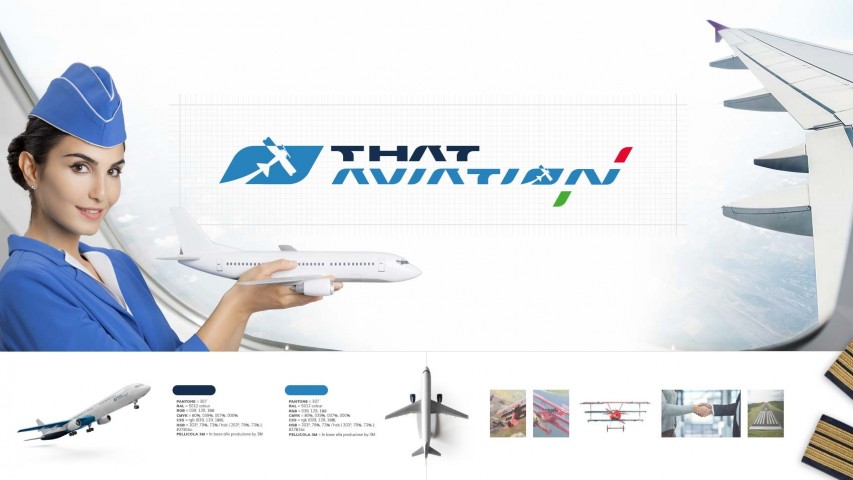
- October 17, 2019
THAT AVIATION ITALIA RENEWS ITS LOGO
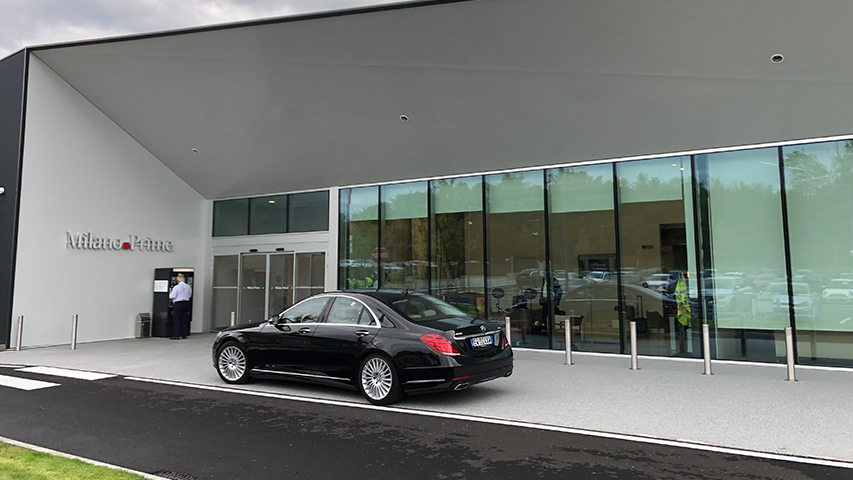
- September 20, 2019
MILAN MALPENSA PRIME: THE NEW TERMINAL FOR THE LUXURY FLIGHTS
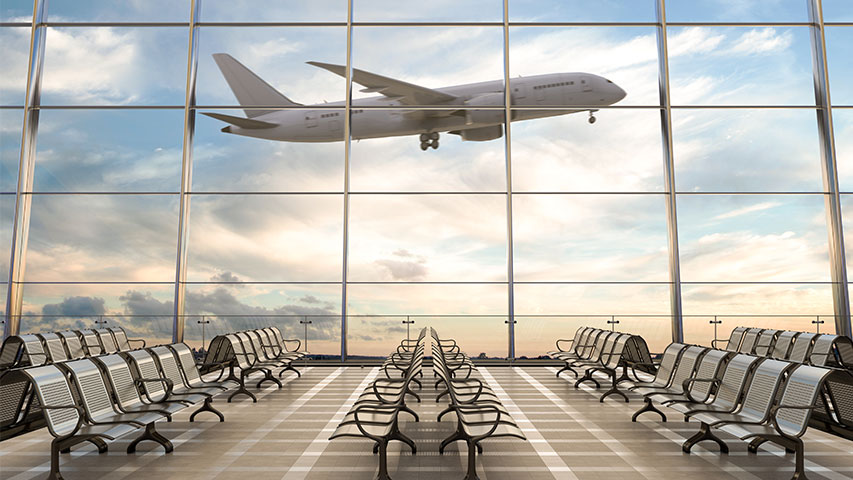
- August 29, 2019
ACMI, AOG, EMPTY LEGS… WHAT DO THEY MEAN EXACTLY?
Subscribe to that newsletter.
That Aviation Italia, also known as THAT!, is a trusted partner for charter flights and private jet chartering.
ONLY WITH THAT!
THAT! assists in making your charter flight unique and increasing brand recognition through customisation that enhances its identity and inspires a collaborative spirit from the moment you arrive at the airport, providing ongoing support at every stage of the event.
AIR SERVICES
- Flights for sports teams
- Supporter team flights
- Flights for marathons and runners
- Flights for incentive, conventions and corporate events
- Series charters for tour operators
- Executive and business jets
- Flights for religious trips and pilgrimages
- Humanitarian flights
- Cargo plane
- Military transport
- ACMI Aircraft Leasing
© 2023 THAT AVIATION ITALIA SRL | Via Sempione, 39 21029 Vergiate (VA) Italia | P.IVA 09246270962 | Credits
Research / 2023 Incentive Travel Index
Incentive Travel Index
2023 incentive travel index.
by Incentive Research Foundation

Las Vegas, October 16, 2023 . The newly released 2023 Incentive Travel Index (ITI) reports that, overall, the incentive travel industry is strong. Growth is projected through 2025 for both number of people participating in incentive trips as well as per-person spend. That said, tangible financial ROI and concerns around cost are indexing higher than previous studies, highlighting a underlying caution that stems from an uncertain geo-political, economic, and environmental backdrop. While industry-wide trends emerged, the study reflects variation by geography as well as by industry sector.
The Incentive Travel Index is joint initiative of the Incentive Research Foundation (IRF) and the Foundation of the Society for Incentive Travel Excellence (SITE Foundation) and is undertaken in partnership with Oxford Economics.
“The 2023 Incentive Travel Index drills down to examine the data by industry and geographic location, enabling incentive industry professionals to target the data they need to make decisions to meet their specific goals,” said SITE CEO, Annette Gregg . “The ITI clearly demonstrates that one size does not fit all. Incentive industry professionals need to be nuanced in their approach to client needs and mindful of the fact that there can be significant differences based on industry vertical or geographic location.”
“Incentive travel is expected to be fresh and exciting, with 71% of our respondents indicating an increased demand for new destinations not used before,” said Stephanie Harris , IRF President. “With projected growth and increased demand, incentive professionals will also have to contend with challenges of availability, lift, and access to local resources. The supply chain for incentive travel experiences can be complex, so it’s critical to form strong partnerships with suppliers, including hotels, DMOs, and DMCs.”
For additional key findings from the 2023 Incentive Travel Index study as well as reports from previous years, visit https://www.incentiveindex.com/.
About the Incentive Travel Index
Now in its sixth year, The Incentive Travel Index is a collaboration between IRF and SITE Foundation . With research partner Oxford Economics, the organizations have again created an indispensable annual report on the state of incentive travel, providing data on current and future evolution.
The 2023 online survey, fielded globally from June – July 2023. More than 2,400 incentive travel professionals participated in the survey. Respondents represented five distinct incentive travel professional roles: corporate end user, third party agency, DMC, destination supplier and DMO.
The 2023 Incentive Travel Index has been supported by Accor, Destination Canada, IMEX Group, Hilton, ITA Group, Tourism New Zealand, and Tango.
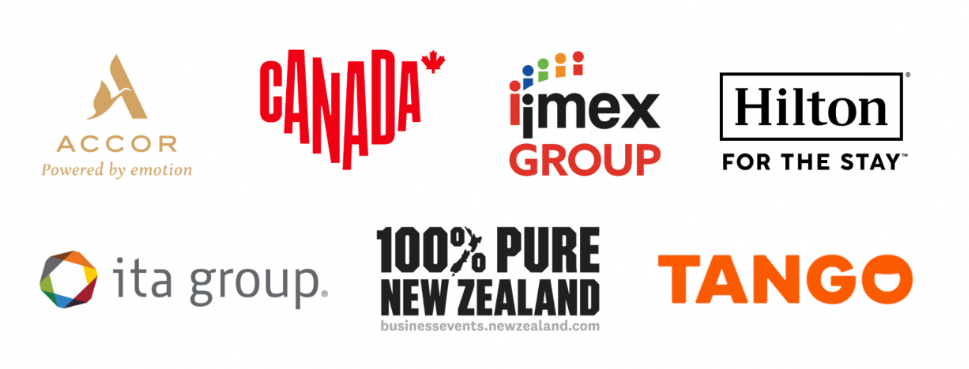
Related Posts
View all research.
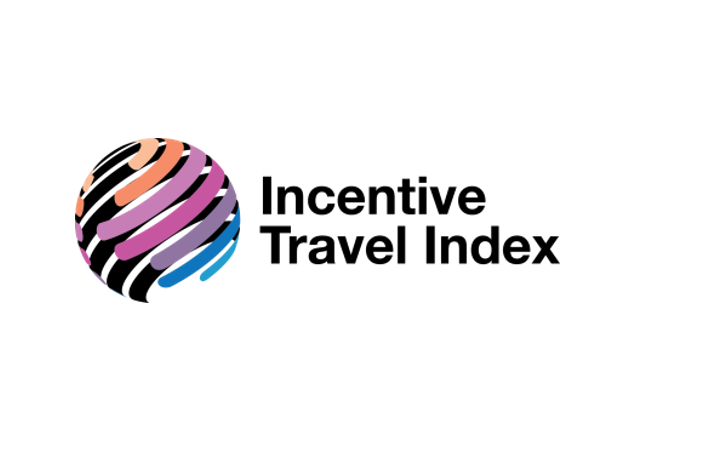
2022 Incentive Travel Index
The newly released 2022 Incentive Travel Index (ITI) reports that, overall, the incentive travel industry is strong. Recovery is progressing, program design is evolving and there is increased interest in new destinations. While industry-wide trends emerged, the study reflects variation by geography as well as by sector. The ITI enables incentive industry professionals to target the data…
Artificial Intelligence

AI: Uses and Possibilities for Incentives Professionals
This report explores how incentives professionals are using AI both in the travel and non-travel incentive arenas, information about the tools and programs they find most valuable relative to incentive programs, and the gains and impacts they’re experiencing as a result.
IRF Updates Sign Up
Email Address*
First Name*
Industry Role* —Please choose an option— End-user / Program Owner Third Party Buyer Supplier Media Academic/Research Other
Supplier Role* —Please choose an option— Hotel Merchandise Gift Card CVB DMC Other
Where are you based?* —Please choose an option— North America Europe Asia Pacific Latin America and the Caribbean Africa
I consent to receive IRF updates and announcements via email. For further information, please consult the Privacy Policy.
What is incentive travel?

Business and leisure, the best of both worlds. An incentive event, incentive trip or incentive travel aims to create unforgettable memories for the team and managers by combining business sessions (meetings, workshops, seminars) and leisure, mainly with team-building activities and other relaxing activities.
It is mainly done abroad, as a way to reward employees for their performance and to show them they are part of the company. It is a fantastic option that could strengthen team bonds, merge new teams and increase the employees’ engagement with the company.
Keep reading to discover how to organise an incentive trip!

How to organise an incentive trip?
Once you know what is incentive travel, do you know what steps does Meridional Events follow to create a unique, tailor-made incentive trip that suits all your needs?
Gathering information for your incentive event
Designing your incentive, before the incentive travel, the incentive trip, after the group incentive.
Once you contact us , we start setting the objectives of your incentive trip . How many people will attend? How many days will it take? Any preference when it comes to a destination? What services would you need on top of accommodation and transport? Are you planning any other activity around it?
A team-building activity , a gala dinner or a relaxing spa evening could be part of your incentive trip. You could also visit the city accompanied by a tour guide or go to a trendy venue where you can enjoy our delicious Andalusian gastronomy.
We have now set up all your requirements and budget. It is time for us to start designing your trip by looking for the most suitable providers according to your needs. Whether you are looking for a German or French speaking guide to take you around, a hotel equipped with the latest technology or a restaurant that only uses local production, we have you covered.
Meridional Events offers honest, professional and unbiased solutions according to your requirements where you have the last word .
We always present a detailed itinerary with several options and different possibilities to choose from, with descriptions and pictures to give you an idea of what you would get once you are here. Now is the time for you to think about what options you like the most and make the final decision.
Once the trip is defined and the options are chosen, at Meridional Events we start working on your incentive trip with the utmost diligence to ensure we deliver our services to the highest standards . We start booking all the agreed services and take care of all the logistics involved. To name but a few:
- transportation,
- hotels with different room types,
- restaurants with extensive and not always comprehensive menus,
- venues located in hidden spots,
- performers that are only known locally -yet outstanding,
- catering -and dealing with food allergies and intolerances ,
- are you planning an accessible incentive event?
These are just some examples of the many people involved in a single incentive trip. Not to mention the number of companies that offer similar services, how to choose the right one?
Now imagine having to coordinate all of them when you are thousands of kilometres away and do not speak their local language. Daunting? It could be, but it does not have to if you leave it in our hands!
The day has finally come. A bit of excitement starts running through your body when you start packing and imagining yourself sipping a cocktail on that rooftop terrace the hotel offers after a day full of business meetings.
20 degrees in February? How is that even possible? It is in Andalusia! Get those flip flops off the bottom drawer. Team building activities as part of the incentive trip? It is about time to do some physical activity with your peers! Gala dinner at a fancy venue? Suit up! The possibilities are endless .
To start with, we offer 24/7 on-venue support during your incentive trip. We know things will run smoothly but just for your peace of mind, we will be there from the minute you land until we wave you goodbye ensuring you leave with unforgettable memories.
You go back to the office thinking about your experience in the South of Spain and how worthy was to get a team of professionals like Meridional Events to organise your incentive trip. Your employees feel appreciated and positive. They have built relationships within the team that would have never happened inside those four walls. You perceive two immediate benefits:
1) The productivity of your company grows because your employees perform better.
2) Your employees are more loyal to your company because now they know you care. Your employee retention grows, cutting your costs in headhunters/agencies and HR, as well as those costs associated with getting new staff (training, corporate culture, etc.).
We always appreciate your honest feedback . At the end of the day, we are here to make your life easier and your opinion is what matters the most to us.
Ready for your next year’s incentive trip? We definitely are! Check our catalogue of destinations and types of incentives for more information, or contact us:
- 1.1 Gathering information for your incentive event
- 1.2 Designing your incentive
- 1.3 Before the incentive travel
- 1.4 The incentive trip
- 1.5 After the group incentive
- 1.6 Feedback
También le puede interesar…

The Art of Organising Unforgettable Team Gatherings
Unlocking Team Magic: Unforgettable Team Gatherings with Meridional Events Your journey towards the ultimate team...

Amazon-Style Customer Service with Meridional Events
Welcome to the world of Meridional Events, where we redefine corporate events and event management, providing you with...

Meridional Events & Valencia: Open for Business
Discover the Vibrant Charm of Valencia for Unforgettable MICE & Corporate Events September comes waking up the...
Contáctenos para más información
Teléfono (formato internacional)
Correo electrónico
Permita que Meridional Events almacene y procese la información personal enviada: sepa más
Nos gustaría tener su permiso para seguir en contacto: información
Otros métodos de contacto en la sección de contacto o llámenos: (+34) 952 401 900

- Oil Futures
- Energy-General
- Heating Oil
- Natural Gas
- Company News
- Geopolitics
- Nuclear Power
- Solar Energy
- Hydroelectric
- Renewable Energy
- Geothermal Energy
- Tidal Energy
- Global Warming
- Breaking News
- Premium Articles
- Latest Discussions
- Energy General
- Oil Stocks & Prices
- Other Energy Topics
- OPEC Blends
- Canadian Blends
- U.S. Blends

- 1 hour Unexpected Crude Inventory Build Weighs on Oil
- 4 hours OPEC’s Oil Production Falls in April
- 5 hours OPEC+ Overproducers Present Plans For Cutting More Oil Production
- 6 hours Weak Diesel Demand Has Traders Hunting for East Coast Storage
- 7 hours G7 Pledge to Exit Coal by 2035 Could Include Exceptions for Germany and Japan
- 8 hours Texas Producers Boost Flaring as Natural Gas Prices Tumble
- 9 hours Energy Giant Enel Faces Higher Interest on $14.5 Billion ESG Bond
- 11 hours Marathon Petroleum Q1 Earnings and Revenue Beat Estimates
- 12 hours Norway Plans to Develop a New $570-Million Oil and Gas Field
- 13 hours Ukraine Asks Europe to Help Protect Gas Storage Sites From Russian Strikes
- 14 hours Alberta First Nation Challenges Imperial Oil on Energy Transition Impact
- 16 hours Petrobras Books 4.4% Rise in Q1 Oil Output
- 1 day Rystad: Global Upstream Could See Another $150B Merger This Year
- 1 day Iraq To Start First West Qurna Gas Production This Year
- 1 day Growing Shadow Fleet Makes Oil Price Cap Impossible to Police
- 1 day New Indian Refinery to Be Delayed by Two Years
- 1 day PetroChina Books Its Highest Ever Q1 Profit
- 1 day G7 Nations Discuss Phasing Out Coal-Fired Electricity by 2035
- 1 day Saudi Arabia Is Expected to Raise Its Oil Prices to Asia to a 5-Month High
- 1 day The EU Must Dramatically Increase the Installation Rate of EV Charging Points
- 1 day Turkey Seeks LNG Deal With Exxon to Reduce Reliance on Russia
- 2 days Saudi Arabia Calls for Cool Heads to Prevail in Israel-Hamas Negotiations
- 2 days Global Oil and Gas Discoveries Fell to a Record Low in 2023
- 2 days Oil Prices Start the Week With a Loss as Demand Concerns Grow
- 4 days Drone Attacks Take Khor Mor Gas Field Offline, Claims Lives
- 4 days TotalEnergies Beats Q1 Profit Forecast Despite Lower Natural Gas Prices
- 4 days TotalEnergies Mulls Primary New York Listing to Expand U.S. Shareholder Base
- 4 days Activist Investor Elliott to Build Stake in Anglo American After Failed BHP Bid
- 4 days Outage At Norway’s Hammerfest LNG Extended Until Saturday
- 4 days Higher Oil Output Helps Chevron Beat Q1 Profit Estimates
- 4 days ExxonMobil Underwhelms With Q1 Earnings
- 4 days Refining Giant Phillips 66 Books Lower-Than-Expected Earnings
- 4 days Norway’s Oil Demand Hasn’t Crashed Despite Record EV Market Share
- 5 days A Strong Global Economy Is Expected to Keep Oil Prices Rangebound
- 5 days China’s EV Dominance Threatens to Undermine U.S. Subsidies
- 5 days Oil Prices Are Set for a Weekly Gain as Yellen Sees Inflation Falling
- 5 days Chevron Kazakhstan Oil JV Start New Tengiz Production
- 5 days Saudi Oil Giant, Aramco, Wins 4-Year FIFA World Cup Sponsorship
- 5 days Energy Groups of Czech Billionaire Book $7.8 Billion Core Earnings in 2023
- 5 days Hertz To Sell More EVs as Q1 Loss Exceeds Expectations
- 3 minutes e-car sales collapse
- 6 minutes America Is Exceptional in Its Political Divide
- 11 minutes Perovskites, a ‘dirt cheap’ alternative to silicon, just got a lot more efficient
- 3 hours GREEN NEW DEAL = BLIZZARD OF LIES
- 2 days How Far Have We Really Gotten With Alternative Energy
- 22 hours Could Someone Give Me Insights on the Future of Renewable Energy?
- 4 days e-truck insanity
- 2 days An interesting statistic about bitumens?
- 7 days "What’s In Store For Europe In 2023?" By the CIA (aka RFE/RL as a ruse to deceive readers)
- 9 days Bankruptcy in the Industry
- 6 days Oil Stocks, Market Direction, Bitcoin, Minerals, Gold, Silver - Technical Trading
- 10 days The United States produced more crude oil than any nation, at any time.
Breaking News:
Unexpected Crude Inventory Build Weighs on Oil
Saudi Aramco Seeks Investment Opportunities in New Energies Abroad
The world's largest oil producer…

Breakthrough in Sodium Battery Chemistry Promises Lower Costs
A new mass synthesis process…

Oil Prices Move Higher After a Volatile Week
After a volatile week, oil…
Felicity Bradstock
Felicity Bradstock is a freelance writer specialising in Energy and Finance. She has a Master’s in International Development from the University of Birmingham, UK.
Trending Discussions
Premium content, what does billionaires dominating space travel mean for the world.
- Billionaires like Jeff Bezos, Richard Branson, and Elon Musk are making significant investments in space travel.
- Private space companies are developing technologies that could revolutionize space exploration and satellite communications.
- Concerns are rising about the geopolitical implications of billionaires holding immense power in space.

For decades, when people discussed space travel they thought of NASA. After all, the National Aeronautics and Space Administration accomplished the first moon landing in 1969 and has achieved many more feats since. However, over the last few years, several billionaires have been investing in space travel in a bid to offer passenger flights to space and enhance satellite technology. But where can these billionaires’ ventures take us and what does it mean for just a few players to be holding so much power?
Musk’s company SpaceX, founded in 2002, has launched over 4,500 Starlink satellites over the past five years, which contribute more than 50 percent of all active space satellites in orbit. These satellites are capable of delivering internet access around the world, enhancing global communications, and providing Musk with a great deal of power. SpaceX has over 1.5 million users around the globe. It has requested to be allowed to send a total of 42,000 satellites into space.
Meanwhile, Bezos sent up his first two satellites at the end of last year, after failing to launch two satellites the previous year. Despite setbacks, Bezos hopes to launch 3,236 satellites by 2029. While this would be an impressive feat, Blue Origin has been hugely overshadowed by SpaceX’s recent success.
There are growing concerns about what having so much power in one man’s hands may mean for geopolitical and other issues. In September 2022, Musk refused to activate SpaceX services to support a surprise drone attack on Russian ships by Ukraine. Musk said that he did this to avoid the potential retaliation by Russia. However, this has led to questions about what it means for a billionaire – not a country leader – to have so much power.
Moriba Jah, an associate professor of aerospace engineering and engineering mechanics at the University of Texas at Austin, explained , “Elon couldn’t just have 53% of all the satellites out there that are working if it weren’t because the US government allowed him to do that. So, I don’t blame Elon for this. I’m just saying the US government-backed him and is encouraging this sort of orbital occupation – and this is going to piss other countries off.” Jah added. “Occupation is not a good thing. Occupation is a sort of behaviour of colonizers, and just because something is legal doesn’t mean that it’s right.”
Ghaffarian is the co-founder of Intuitive Machines, which recently became the first company to land a commercial lander - its Odysseus spacecraft – on the moon. He is also the co-founder and chairman of Axiom Space, a company that sends private astronauts on commercial missions to the International Space Station (ISS). It is the first company to be given permission to connect with the ISS and is doing so to develop its own space station. Ghaffarian is also the executive chairman at Quantum Space and the founder of X-Energy .
Rather than competing on all fronts, Ghaffarian, Musk and Bezos plan to work together to achieve the first low earth orbit (LEO) to be able to go to the moon and Mars, and eventually beyond. Ghaffarian believes the space economy could soon be world trillions of dollars, spurred by technological advances, such as artificial intelligence and quantum computing.
ADVERTISEMENT
By Felicity Bradstock for Oilprice.com
More Top Reads From Oilprice.com:
- Big Oil’s Carbon Capture Conundrum
- A Strong Global Economy Is Expected to Keep Oil Prices Rangebound
- U.S. Crude Oil And Gasoline Inventories Drop Off
Download The Free Oilprice App Today

Back to homepage
Previous Post
The Renewable Revolution Hinges on Recycled Metals
Related posts

The U.S. Supermajors Double Down on World's Top Oil Basins

WTI Finds Support After Sell Off Suddenly Halts

Biden Aims to Bridge the Decarbonization Divide With $7 Billion Solar Initiative
Leave a comment, most popular.

Israel Claims to Have Dealt a Serious Blow to Hezbollah

Russia's LNG Expansion Plans Hit the Wall

The Novel Material Revolutionizing Energy Storage

Why Chinese Exports to Russia Are Declining
- More About Us
- Advertise with us
- Editorial Staff
- Terms & Conditions
- Privacy Policy
© OilPrice.com Google+ -->
The materials provided on this Web site are for informational and educational purposes only and are not intended to provide tax, legal, or investment advice.
Nothing contained on the Web site shall be considered a recommendation, solicitation, or offer to buy or sell a security to any person in any jurisdiction.
Merchant of Record: A Media Solutions trading as Oilprice.com
More From Forbes
Hit and run tourism: what does it mean to ‘visit’ a country.
- Share to Facebook
- Share to Twitter
- Share to Linkedin
Mount Everest, Nepal which is suffering from overtourism—400 people have been to every ... [+] country/territory in the world
Hit and run tourism is everywhere on the news, with people bemoaning the bad behaviour of tourists converging on one picture or sculpture before rushing onto the next, or taking selfies in inappropriate locations and then moving on, leaving behind mounds of litter and noise. What's clear is that there are ways that tourists can be motivated to change their behavior and some traveler groups are trying to create consensus around what it actually means to visit a country.
More People Are Visiting Every Country In The World
There's a small group of people who have visited every country in the world—about 400 or so, as reported by CNN . In 2023, though, 50 people joined this group, more than ever before, and they can all say they have been to all 195 UN-recognized countries and territories.
There are more organizations welcoming these travelers too. The Travelers Century Club was the first to launch in 1954—its members need to have visited 100 or more countries and territories. Now there are also two others, Nomad Mania and Most Traveled People.
Most people in these clubs don't suddenly decide to travel to every country in the world. Many, such as Rauli Virtanen who is believed to be the first person to have traveled to every country in the world, are already incredibly well traveled before they decide to make it a mission.
Many, as Virtanen acknowledges, can only travel the world because they are fortunate to have the right passports coupled with enough wealth (or jobs that pay for travel expenses).
Travel, however, has always been a competitive sport—whether that be Ernest Shackleton getting to the Antarctic, Edmund Hillary and Tenzing Norgay climbing Mount Everest or Amelia Earhart crossing the Atlantic. Today's equivalent is probably to visit every country. Ugandan-American travel influencer Jessica Nabongo became the first Black woman to document her travels to every country in 2019 and Gunnar Garfors is the first person to visit every country in the world twice.
Amazon Prime Video s Best New Show Arrives With A Perfect 100 Critic Score
Apple s iphone 16 pro design revealed in new leak, charlotte shooting 4 officers killed while serving warrant, more and more people are complaining of 'hit and run' tourism.
Now that visitor numbers are springing back to pre-pandemic levels, some of the old travel nuisances have also returned. Gion district in Kyoto, Japan, is reporting that tourists are causing a nuisance when trying to take photographs of the women Geishas and that while on-the-spot fines exist, they are unenforceable.
Milan's mayor wants to ban gelato and alcohol sales after midnight to preserve the city's tranquility and Japanese authorities are to build a big wall blocking the view of Mount Fuji from a gas station because of badly-behaved tourists stopping for a selfie and leaving litter everywhere.
The same kind of tourism is happening because of Netflix's Emily in Paris. The show portrays a side of Paris that critics say is stereotypical, and simply untrue (could 'Emily' afford the apartment she has on her salary?) but more insidiously for critics, it has encouraged a form of Parisian tourism that is only interested in a form of collection, identical to the character. The photo eating the same pain au chocolat in the same boulangerie. Tick. The photo drinking the same chocolat chaud in the same 18th century tearoom. Check. For some travelers, the only way to live an experience is by taking a picture and then posting it.
So, What Does It Really Mean To Travel To A Country?
So maybe the real question is, what does it mean to 'visit' a country? Is it spending time there, even if we never speak a word of the language? Never speak to a local? Nomad Mania members suggest that 'a visit' should normally constitute things such as passing through immigration, staying a night, and traveling in a moving vehicle.
The Director of the Galleria dell’Accademia in Florence, best known for housing Michelangelo’s David, notes that there are also different ways that people can be encouraged to pass through some of the world's most famous—and most Instagrammable—locations. Writing in The Guardian , Cecilie Hollberg suggests several things that have worked to reduce such 'hit and run' tourism in her museum—holding exhibitions in winter, extending opening hours, getting the local residents involved, changing signage and museum trajectories so that visitors don't all head straight for selfies with David, as well as reducing the numbers in tour groups.
In the age of the climate crisis, it might also depend on how we travel. Torbjørn “Thor” Pedersen set off from Denmark in 2013 to visit every country without flying and he finally arrived in his final country, the Maldives, in May 2023 after 9 years and 203 countries/territories and returned to Denmark by ship. Some travel challenges it seems can be slow burn and meet current Instagram trends.

- Editorial Standards
- Reprints & Permissions
Could Southwest Airlines really say goodbye to open seating? What travelers should know

Southwest Airlines is considering changing one of the things that sets it apart other carriers.
In a crowd of airlines where seat assignments are common, Southwest's open seating policy, where the passengers first to board get their first choice of seats, makes it unique. And the only major U.S. airline to offer open seating is considering whether to end its longtime open seating policy in favor of seat assignments.
Southwest Airlines President and CEO Bob Jordan told investors in an April 25 earnings call that the airline's staff is "evaluating options to enhance our customer experience as we study product preferences and expectations, including onboard seating and our cabin."
Also during the April 25 earnings call, Southwest announced it would end service at four airports and cut flights from two others, affecting a route out of Phoenix . Southwest passengers in Phoenix can also find out where Southwest ranked among the best airports of 2024 , and what's coming to the Phoenix airport in 2024, including a new Southwest concourse.
Southwest experimented with abandoning open seating in 2006, operating about 200 flights in San Diego where passengers were assigned seats. The airline ultimately kept open seating, but with a few tweaks.
Here's what Southwest Airlines passengers need to know about its open seating policy and whether it will end.
Is Southwest getting rid of open seating?
It's too early to say for sure, but Southwest Airlines executives publicly stated they're considering it.
The airline's staff is conducting a study on customer preference around its aircraft cabins and seating, evaluating whether consumer preferences have changed and how a shift away from open seating might benefit the company, Southwest spokesperson Laura Swift told The Arizona Republic.
These Arizona hotels: were just named among the world's best. Here's why they stand out
What does open seating mean on Southwest Airlines?
On a flight with open seating, passengers don't have assigned seats. Where they sit largely depends on their place in the boarding queue, as those who board the plane first (in boarding group A) get the first choice of seats. Those who are among the last to board generally have fewer options for seating, often limited to middle seats and less overhead space for carry-ons.
While Southwest's policy means they miss out on ancillary revenues from selling seat assignments, they do sell services that give passengers better boarding positions . These include EarlyBird Check-In, which ranges from $15 to $25 one-way and includes automatic check-in and a better boarding position and Upgraded Boarding, which starts at $30 one-way and offers the best available boarding position between A1 and A15 for flights departing within 24 hours.
Southwest generated $925 million from ancillary fees in 2023, up from $735 million in 2022, according to its 2023 annual report . However, the data for ancillary fees doesn't separate how much comes from EarlyBird Check-In and how much comes from charges unrelated to boarding upgrades, such as in-flight purchases.
How long has Southwest had open seating?
Southwest's open seating policy began with its first flight in 1971. At the time, it was first-come, first-serve.
This policy was reflective of the philosophy of the airline's late co-founder Herb Kelleher, who disliked class mentality and treated everyone he met as equal.
As the airline stated in a 50-year retrospective in 2021: "First-class cabins were nonexistent at Southwest. Nobody had priority in boarding: The first person in line was the first person on the plane. The people sitting up front weren’t enjoying gourmet meals and champagne. Everyone had the same snack and drink choices."
Travelers have a love-hate relationship with Southwest open seating
Despite fliers' love-hate relationship with Southwest's open seating policy, the airline's staff observed benefits from using it. It cited "numerous studies" that found open seating gets passengers on planes more quickly and efficiently, and faster boarding translated to more on-time departures and lower fares.
Southwest experimented with flights that abandoned open seating in 2006 in San Diego and San Antonio, and customer feedback showed they preferred the freedom to choose their seats.
But the experiment also revealed frustrations with the first-come, first-served aspect of open seating. A year later, Southwest began assigning letter and number combinations printed on boarding passes, so passengers could line up to board by boarding group and number, a process still used today.
Michael Salerno is an award-winning journalist who’s covered travel and tourism since 2014. His work as The Arizona Republic’s consumer travel reporter aims to help readers navigate the stresses of traveling and get the best value for their money on their vacations. He can be reached at [email protected] . Follow him on X, formerly Twitter: @salerno_phx .
Support local journalism. Subscribe to azcentral.com today.
- Skip to main content
- Keyboard shortcuts for audio player
What consumers should know as Philips agrees to $1.1 billion CPAP settlement
Bill Chappell

The medical device maker Philips has agreed to a $1.1 billion settlement to address claims brought by thousands of people with sleep apnea who say they were injured by the company's CPAP machines. Smith Collection/Gado/Getty Images hide caption
The medical device maker Philips has agreed to a $1.1 billion settlement to address claims brought by thousands of people with sleep apnea who say they were injured by the company's CPAP machines.
Millions of CPAP sleep apnea machines made by the medical device maker Philips and a subsidiary were found to have a dangerous problem, triggering consumer lawsuits and a massive recall in 2021. Now, Philips has reached a $1.1 billion deal to settle claims from people who say they were injured. A portion of the funds will also go toward medical monitoring.
Some 15 million Philips CPAP and ventilator machines worldwide are affected by the Class I recall, a designation reflecting "a reasonable probability that the use of, or exposure to, the products will cause serious adverse health consequences or death," according to the Food and Drug Administration .
The devices were sold between 2008 and 2021 in the U.S. under the Philips Respironics brand, according to Philips' recall notice .
"Since April 2021, the FDA has received more than 116,000 MDRs [Medical Device Reports], including 561 reports of death," that were either reported or suspected to be related to problems with insulating foam in the Philips devices, the FDA said earlier this year.
"Philips and Philips Respironics do not admit any fault or liability, or that any injuries were caused by Respironics' devices," the company said as it announced the new settlement agreement.
Here's an overview of the recall and where consumers stand:
Settlement money will likely flow next year
The $1.1 billion deal — which includes $25 million for medical monitoring — stems from mediation by retired magistrate judge Diane M. Welsh, but it's not yet final, as the agreement must be filed with a federal court in Pennsylvania — a main state where the machines were produced.
Philips announced the new settlement on Monday, along with its first-quarter financial results. The Dutch-based corporation then saw its stock price vault to a likely one-day record gain, as investors welcomed news that the recall issue seems to have been resolved at a lower cost than analysts predicted.
"The remediation of the sleep therapy devices for patients is almost complete," said Roy Jakobs, CEO of parent company Royal Philips, in a statement. He added, "We do regret the concern that patients may have experienced."
"We are pleased to have reached a resolution" of personal injury claims, the plaintiffs' co-lead attorneys, Sandra L. Duggan; Kelly K. Iverson; Christopher A. Seeger; and Steven A. Schwartz, said in a joint statement to NPR.
The money will go to "users of the now-recalled CPAP and other respiratory devices who suffer from significant physical injuries," and to fund research into treating their injuries, the attorneys said. Philips says some 58,000 people have filed claims or registered for the settlement.
As for when consumers could see money from the deal, Philips said it expects to make the payments in 2025.
This isn't the only settlement
News of the personal injury settlement comes a week after Philips settled a class-action lawsuit over economic damages from the recall.
That settlement is worth a minimum of $613.3 million, including $94.4 million in attorneys' fees. It offers reimbursement to users and "payers" — e.g., insurance companies — for recalled machines they had bought or leased.
The deal was approved last Thursday by senior U.S. district judge Joy Flowers Conti in the federal Court in western Philadelphia. The judge had previously appointed Welsh to serve as mediator in the injury-related class-action suit.
Philips says it expects to pay that money out this year.
What can consumers do?
Under the financial-loss settlement, users are entitled to a $100 award if they return their recalled device by Aug. 9, 2024 — the claim deadline.
People who suspect they own or use one of the affected devices should act soon to verify that if they haven't already, the FDA says . The agency notes that Philips' recall page offers ways to check serial numbers and register a product.
A specially dedicated website is accepting claims for the financial-loss settlement , and it notes that taking part in that deal "does not affect or release any claims for personal injuries or medical monitoring relief."
Under the financial-loss settlement, users are also eligible for a payment for each recalled device they purchased, leased, or rented — and if they paid out of their own pocket to replace a recalled machine, they could be entitled to a device replacement award, according to the website.
The arrangement includes a prepaid shipping label, although the administrators also warn users to consult with their doctor before returning a device they're still using.
A similar claims process will likely emerge for the injury-related deal once its terms are finalized.
Defective machines can send particles, VOCs into airways
The recall was triggered by thousands of health complaints from CPAP users. An investigation found that a polyester-based polyurethane foam built into the devices to dampen sound and vibration also had a risk of breaking down — especially when used in warm and humid conditions.
"If the foam breaks down, black pieces of foam, or certain chemicals that are not visible, could be breathed in or swallowed by the person using the device," the FDA said.
The agency said in a letter to Philips in 2022 that the foam also "may degrade and/or emit harmful chemicals, potentially resulting in toxic and carcinogenic effects and other significant harms to device users," listing formaldehyde and other volatile organic compounds, or VOCs.
"Philips has acknowledged that, in a worst-case scenario, exposure to VOCs as a class may cause possible toxic and carcinogenic effects, as well as irritation of the respiratory tract, eyes, nose, and skin, nausea or vomiting, hypersensitivity reactions, dizziness, and headache," the FDA said.
Resulting problems "could potentially result in serious injury and may require medical intervention to prevent permanent injury," the agency said.
The plan to fix machines with the problem call for replacing the polyester-based foam with one that uses silicone as its base .
What is the current status of Philips CPAP machines?
U.S. sales of Philips' popular DreamStation and other respiratory units are currently on hold; the company says it plans to resume selling the devices once it has satisfied the terms of a consent decree with the U.S. government .
Philips also says it will continue to service units that are still in use, including by providing replacement parts.

Shots - Health News
You snooze, you lose: how insurers dodge the costs of popular sleep apnea devices.
Lawsuits against the company contend that Philips designed its CPAP machine poorly and put it on the market without appropriate warnings.
The FDA accuses Philips of not taking appropriate action about the dangers of the degrading foam in its CPAP and ventilator devices despite learning about the risk as early as 2015. That year, the FDA said in a letter to the company, a Philips subsidiary began a preventative procedure because of complaints about the foam breaking down. The agency says it learned about the matter when the FDA inspected a manufacturing plant in Murrysville, Pa., in 2021.
When asked about the 2015 revelation, a company representative said the only documentation of the issue was a single email, with other communications handled over the phone, the FDA said in its letter.
What is sleep apnea, and how much do CPAP machines cost?
Sleep apnea is a disorder that prevents people from getting enough oxygen while they're sleeping — it's often characterized by long pauses in breathing, and loud snoring. People diagnosed with the disorder rely on continuous positive airway pressure, or CPAP, machines to keep their airways open and help them stay asleep.
Last June, the White House said President Biden was using a CPAP machine to help with sleep apnea.
Prices for many units range from around $500 to more than $1300.
"The average cost of a CPAP machine is about $800 among those we reviewed," the National Council on Aging said last year.
The recall also covers some models of Philips' more complicated BiPAP ventilators, which facilitate both inhalation and exhalation and routinely cost hundreds of dollars more.
Many apnea and ventilator devices' users also face additional costs, from replacements parts and upkeep to buying an additional machine for travel.

IMAGES
COMMENTS
The 'incentive program' is the entire scheme that leads up to and includes the 'award'. The 'incentive program' might start up to a year in advance, often it's unveiled at the end of the current program—perhaps at an awards dinner on the final evening—in order to build excitement. Format of an Incentive Program.
Incentive travel is a specific trip or tour offered to top-performing employees as a way to motivate them to make more sales, gain more customers, and/or improve overall performance. By offering an incentive trip, companies are able to drive their business goals and recognize top performers. An incentive trip can be taken as a group or an ...
Incentive travel, therefore, is about reward and recognition - rewarding team members with an extraordinary travel experience for delivering outstanding results, recognising these high achievers before their peers and publicly validating their achievements. For incentive programmes, the "appeal" of the destination is crucial as an all ...
What is incentive travel? Let's start with incentive travel meaning: Incentive travel is the use of an all-expenses-paid trip to reward and motivate employees or channel partners for achieving specific business goals. Incentive trips can be given to individuals to use independently or designed as a group travel experience.
Incentive travel can be a powerful tool to drive employee or customer engagement, performance, and team cohesion. leveraging the psychology of travel as a motivator can lead to numerous benefits for your business, including increased motivation, improved retention, enhanced teamwork, higher productivity, and a stronger company culture.
An incentive is anything that entices a person to complete a task. We all work for the incentive of our paycheck and benefits. Yet, sometimes, going above and beyond the primary rewards can increase motivation and appreciation.That's where incentive travel benefits your company. In a nutshell, it's rewarding productivity and/or loyalty with ...
Incentive travel programs can be used to achieve a variety of desired outcomes from improved employee engagement to client spending incentives. Let's take a closer look at four possible uses of corporate incentive travel programs. 1. Employee motivation. One of the best ways to overcome organisational challenges such as low productivity ...
Incentive travel is a kind of travel experience that is offered to motivate, incentivise or reward employees. Companies offering incentive programmes will often select a number of top-performing employees every year and send them on a free or heavily subsidised trip to thank them for their work. Alternatively, incentive trips may be used as a ...
Incentive travel is a reward and recognition program designed not only to motivate but also to show gratitude to performers that rise to the challenge set by the program. Appreciation often drives connection and engagement. Incentive programs can build loyalty with employees, customers, or any other target incentive audience. ...
Business travel isn't quite back to pre-pandemic levels the way it's complement, leisure travel, is. But there is a growing realization among senior level executives that the strategic use of employee rewards can increase profitability.And with much talk the past few years about increasing travel by outlets like Forbes, it's no surprise that incentive travel is on the rise in the ...
Benefits of incentive travel for employees. Despite the obvious joy of a free holiday, incentive travel initiatives provide many benefits for employees: Improved growth opportunities: Incentive trips allow employees to transgress the often impenetrable barriers of the corporate hierarchy. This nurtures their emotional bond with the company and ...
What does incentive travel mean? Incentive travel refers to travel experiences offered to employees or customers as a reward for achieving specific goals, targets, or milestones. It is a way to recognize and celebrate their hard work, dedication, and loyalty to your organization.
For this reason, most companies that provide incentive travel programs put the utmost importance into providing chances for relaxation, connection, and fun for their employees. 5. Improve Retention Among Top Employees. An incentive trip for your top performers may improve your retention and reduce employee turnover.
An Employee Incentive Travel Program is a recognition program for rewarding exceptional employees with an all-expenses-paid trip to their favorite destination. The essence of the travel incentive program is to reward high-performing employees and motivate the rest to reach the desired standards. Some organizations also offer these incentive ...
Travel incentives, in other words, all-expenses-paid trips; The third and last category is the most powerful and meaningful of all: Incentive travel. Incentive Travel Meaning. For corporate executives and senior management, incentive travel means engaged and enthusiastic employees performing at higher levels with a happier outlook.
By definition, incentive programs focus behavior on attainment of a specific set of objectives, both financial and non-financial, over a fixed period of time. This need for incentive programs ... Incentive travel has the ability to stand out from regular compensation and create a special focus on a campaign. Interestingly, most sales incentive ...
Travel incentive programs allow employees to tick items off their bucket list without the associated guilt. 4. The Gift of Travel Is More Memorable Than Money. According to the Journal of Economic Psychology, when given the choice in the abstract, employees generally choose cash rewards over non-cash rewards.
A group of senior leaders in the industry will meet the day before the proceedings start at the CEO Summit to begin drafting the Vancouver Manifesto, a document that will describe the nature, purpose and direction of incentive travel. The Vancouver Manifesto will be the subject of a white paper and several short videos in the future.
Incentive travel can be used as a retention tool, especially for millennials who have struggled with job hopping. Incentive travel is often confused with business travel or corporate travel. However, there is a big difference between the two. Business travel is necessary for work, while employee incentive travel is a perk or reward.
The magic of gratitude and increased loyalty. Incentive travel is a reward and recognition programme designed to motivate and show gratitude to performers that rise to the challenge set by the programme. Appreciation often drives connection and engagement. Incentive travel programmes can build loyalty with employees, customers, or any other ...
What does an incentive travel mean?What are incentive travel programs and why do companies invest part of their budget in this direction? "An incentive travel, or incentive, is a company management tool that motivates employees, external collaborators (eg agents and representatives) or company clients in order to increase and/or to improve the productivity/sales.
by Incentive Research Foundation. Las Vegas, October 16, 2023. The newly released 2023 Incentive Travel Index (ITI) reports that, overall, the incentive travel industry is strong. Growth is projected through 2025 for both number of people participating in incentive trips as well as per-person spend. That said, tangible financial ROI and ...
An incentive event, incentive trip or incentive travel aims to create unforgettable memories for the team and managers by combining business sessions (meetings, workshops, seminars) and leisure, mainly with team-building activities and other relaxing activities. It is mainly done abroad, as a way to reward employees for their performance and to ...
Billionaires' ventures into space travel raise questions about private companies' role in exploration, geopolitical power dynamics, and the future of space collaboration.
Hit and run tourism is at pre-pandemic levels but there is some consensus around what it means to visit a country and sites can take action to reduce this phenomena.
Seder means "order" in Hebrew, and that should be the first clue that this traditional Passover meal has very special significance. Passover (Pesach in Hebrew) is an annual holiday marking the ...
What does open seating mean on Southwest Airlines? On a flight with open seating, passengers don't have assigned seats. Where they sit largely depends on their place in the boarding queue, as ...
While this means that employers should prepare to comply with this new rule within a few months, the rule already faces legal challenges that could impact or delay its implementation or result in its invalidation. In particular, the challengers argue that the final rule exceeds the FTC's statutory authority, is arbitrary and capricious in ...
The medical device maker Philips has agreed to a $1.1 billion settlement to address claims brought by thousands of people with sleep apnea who say they were injured by the company's CPAP machines.